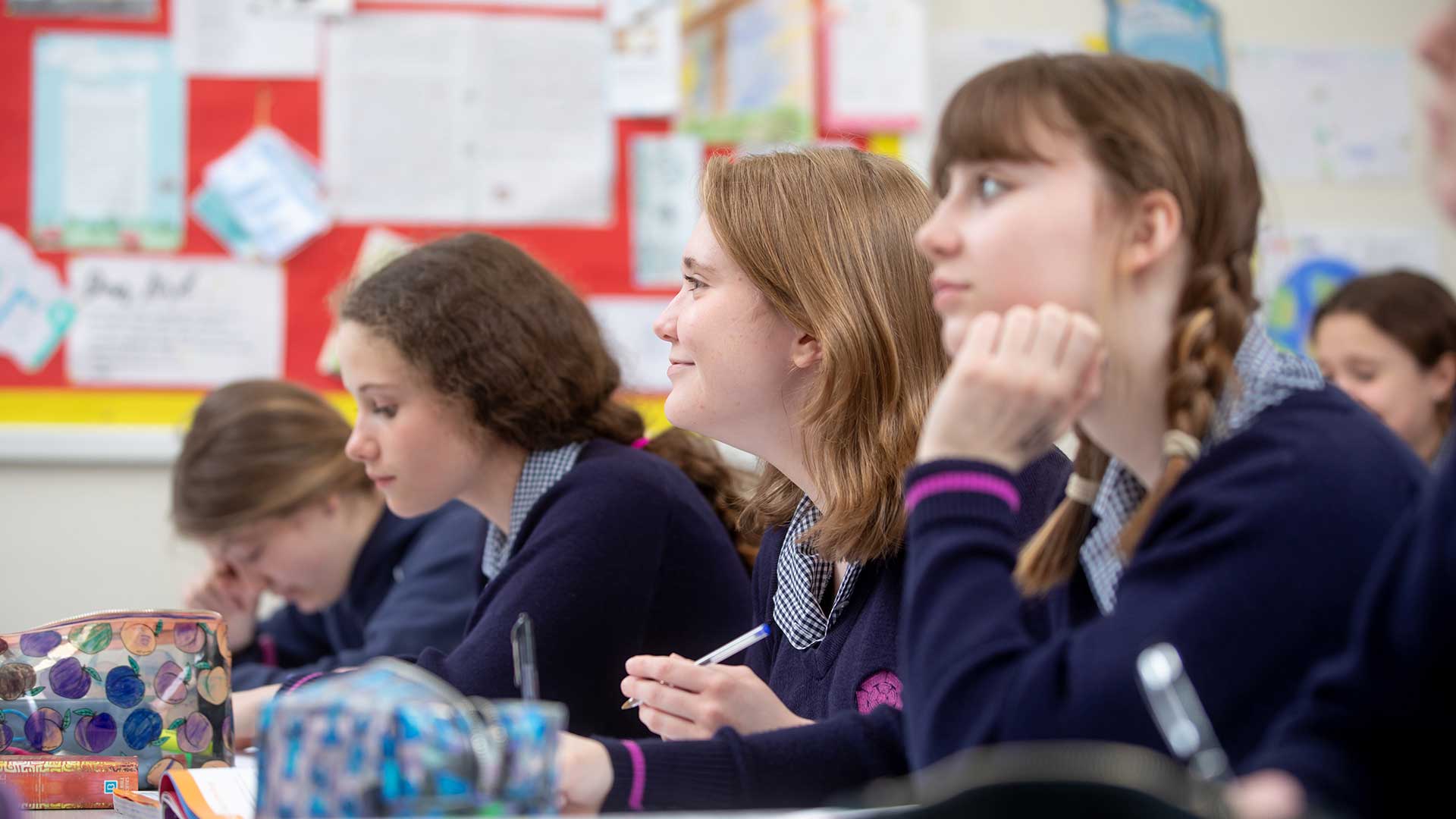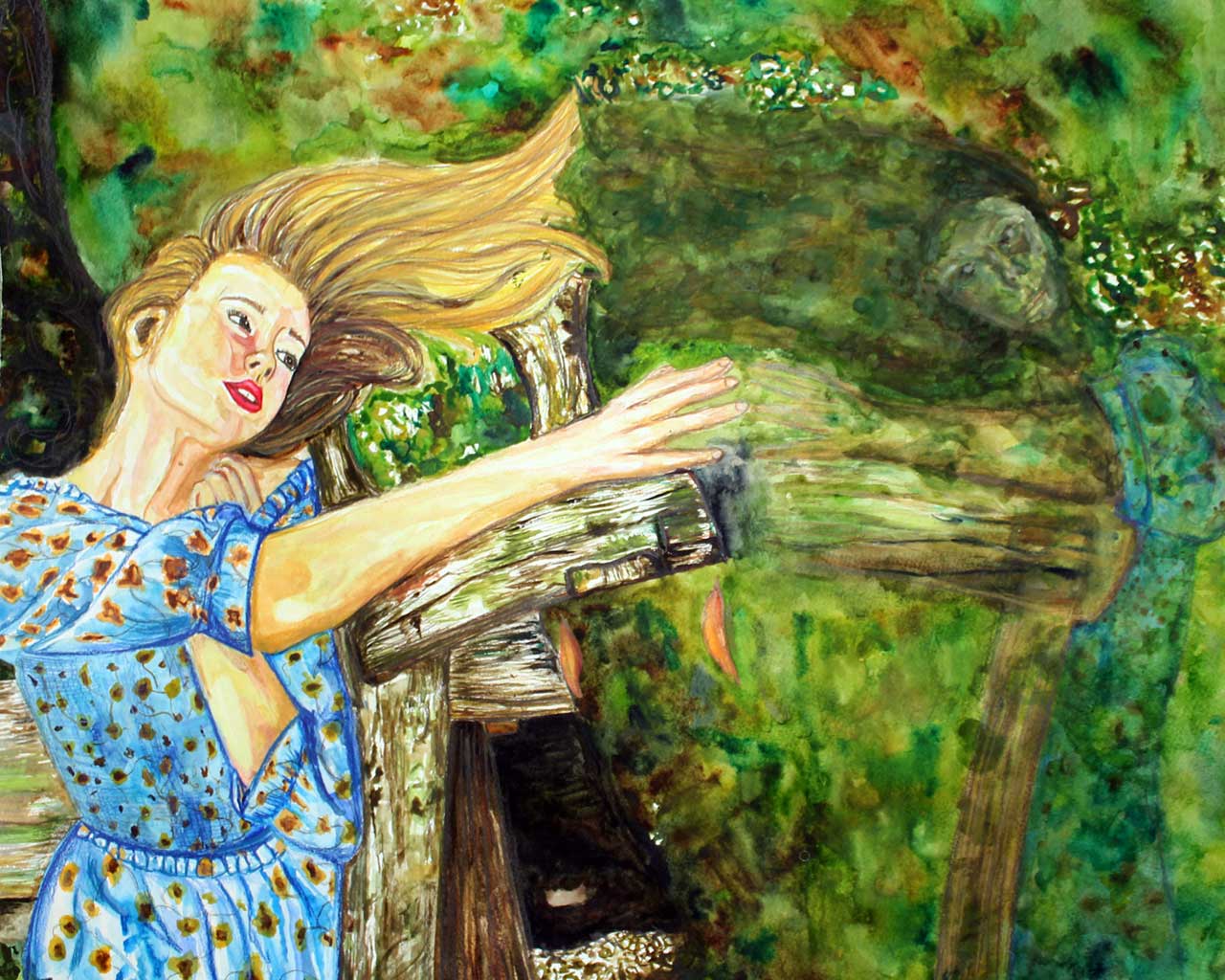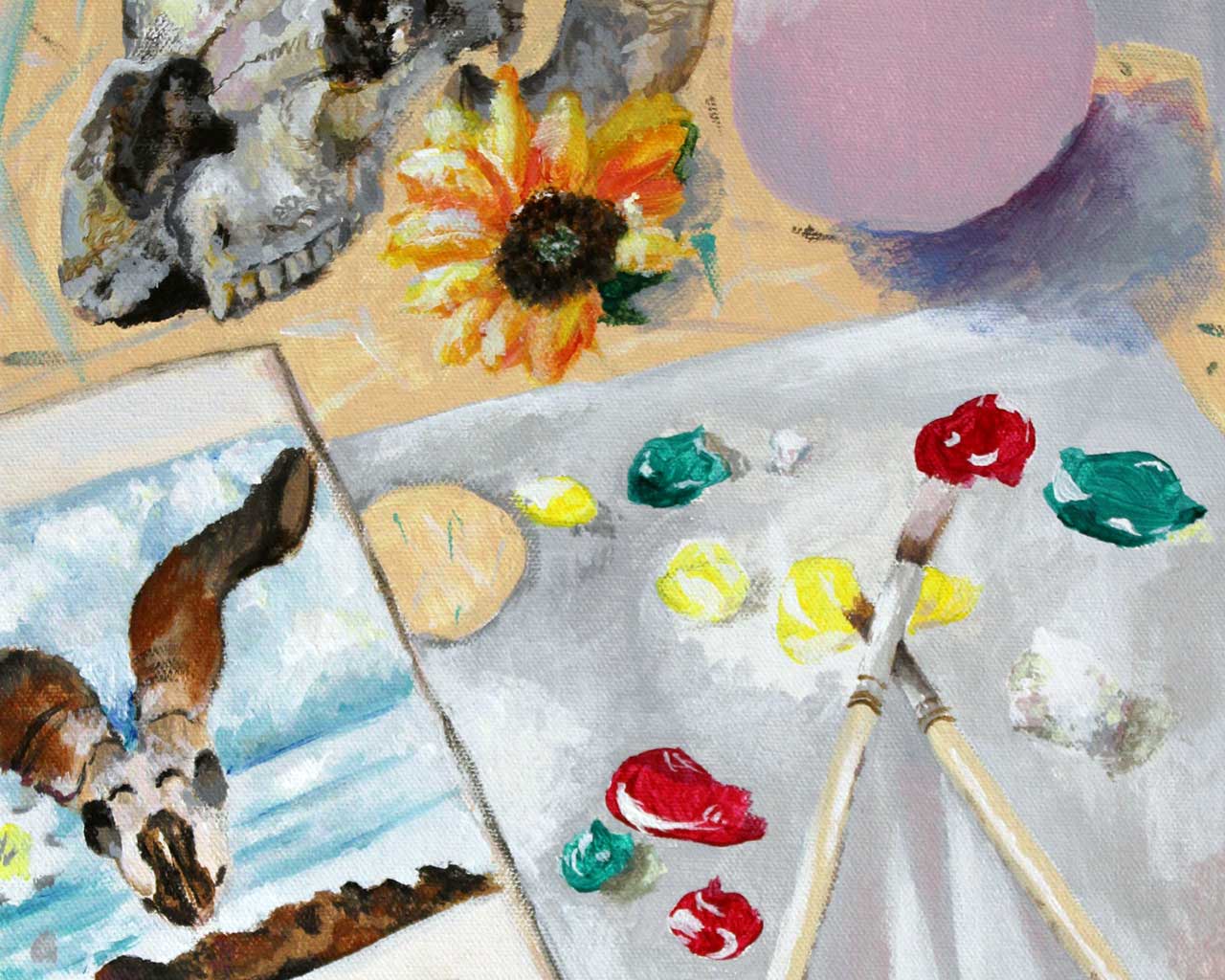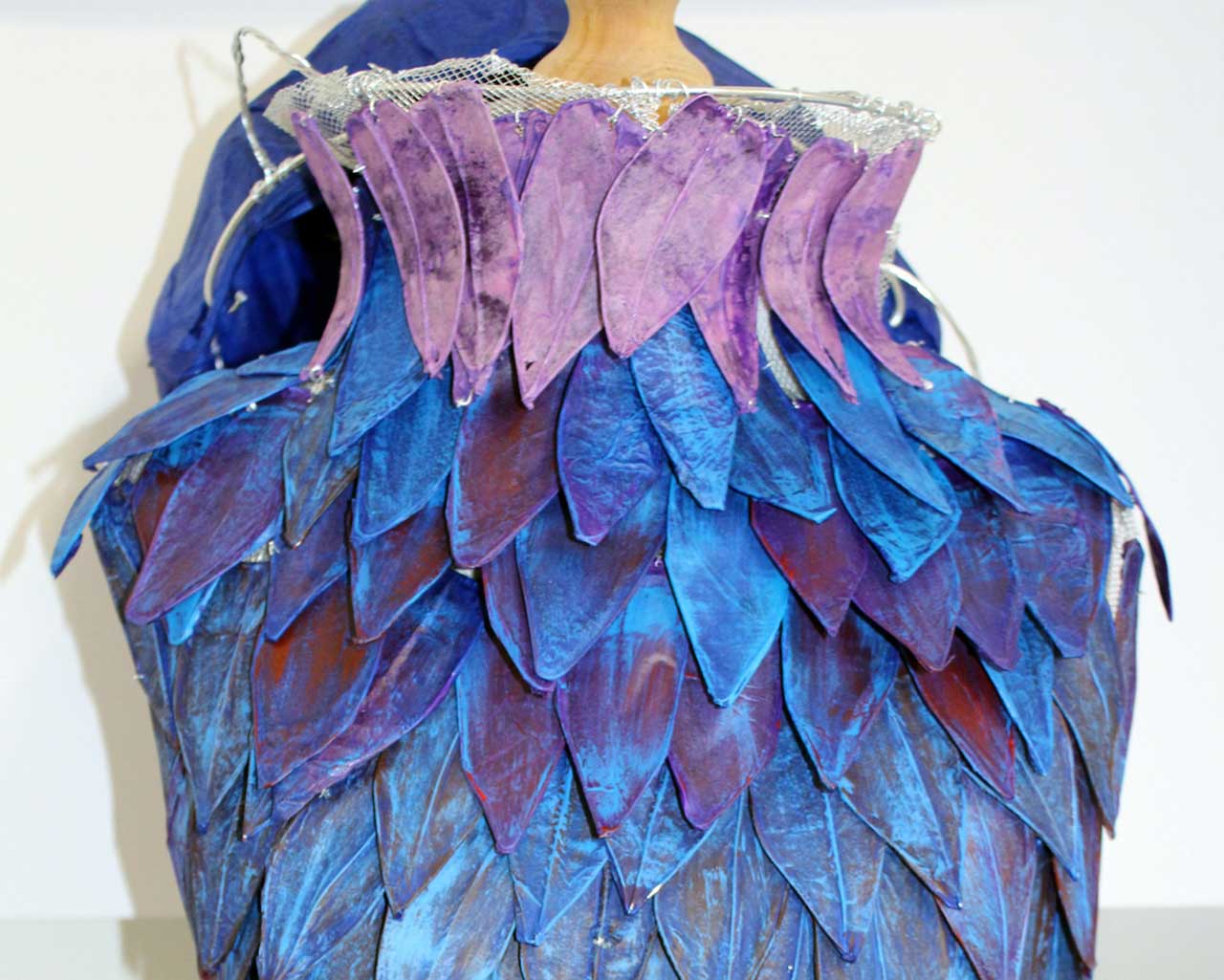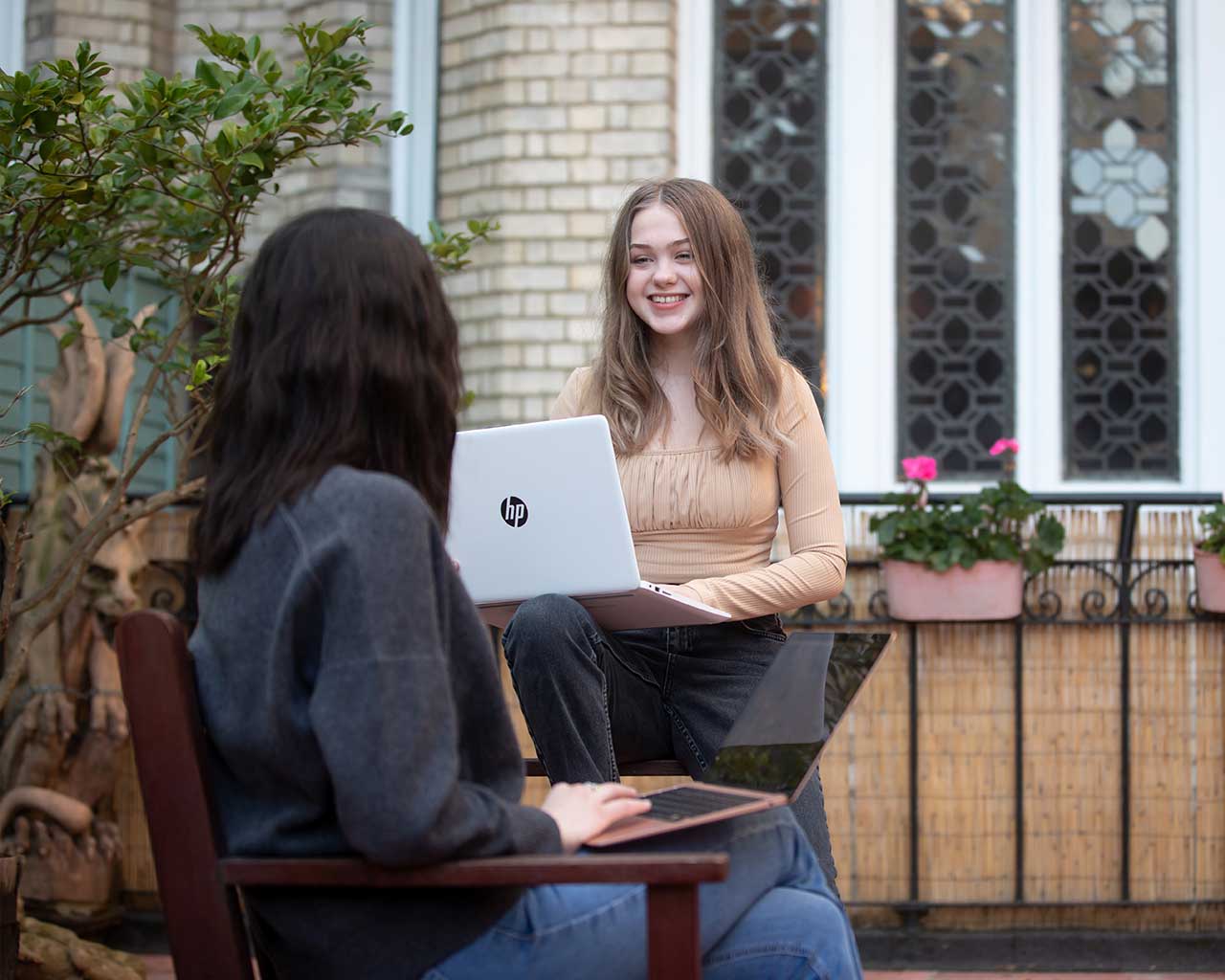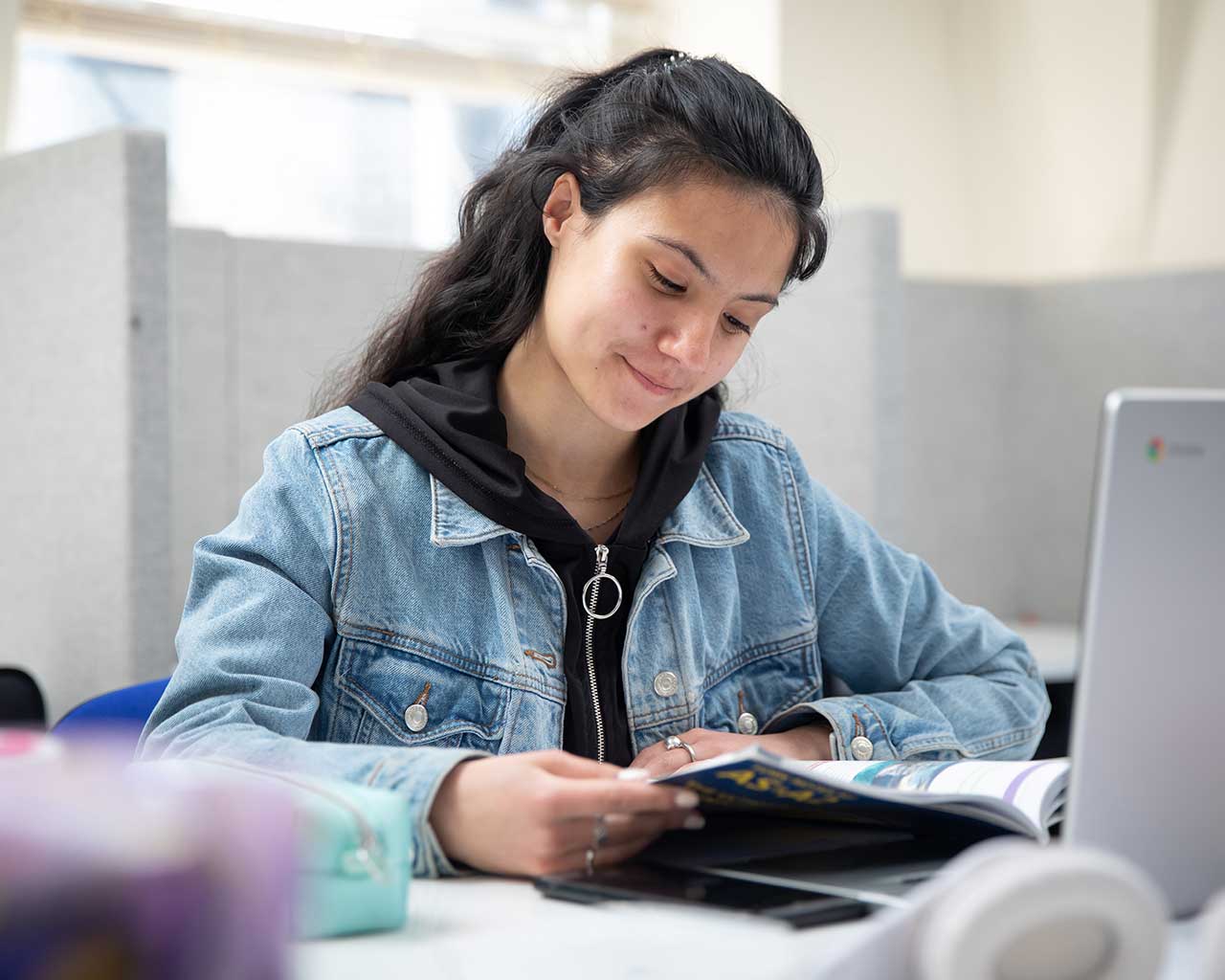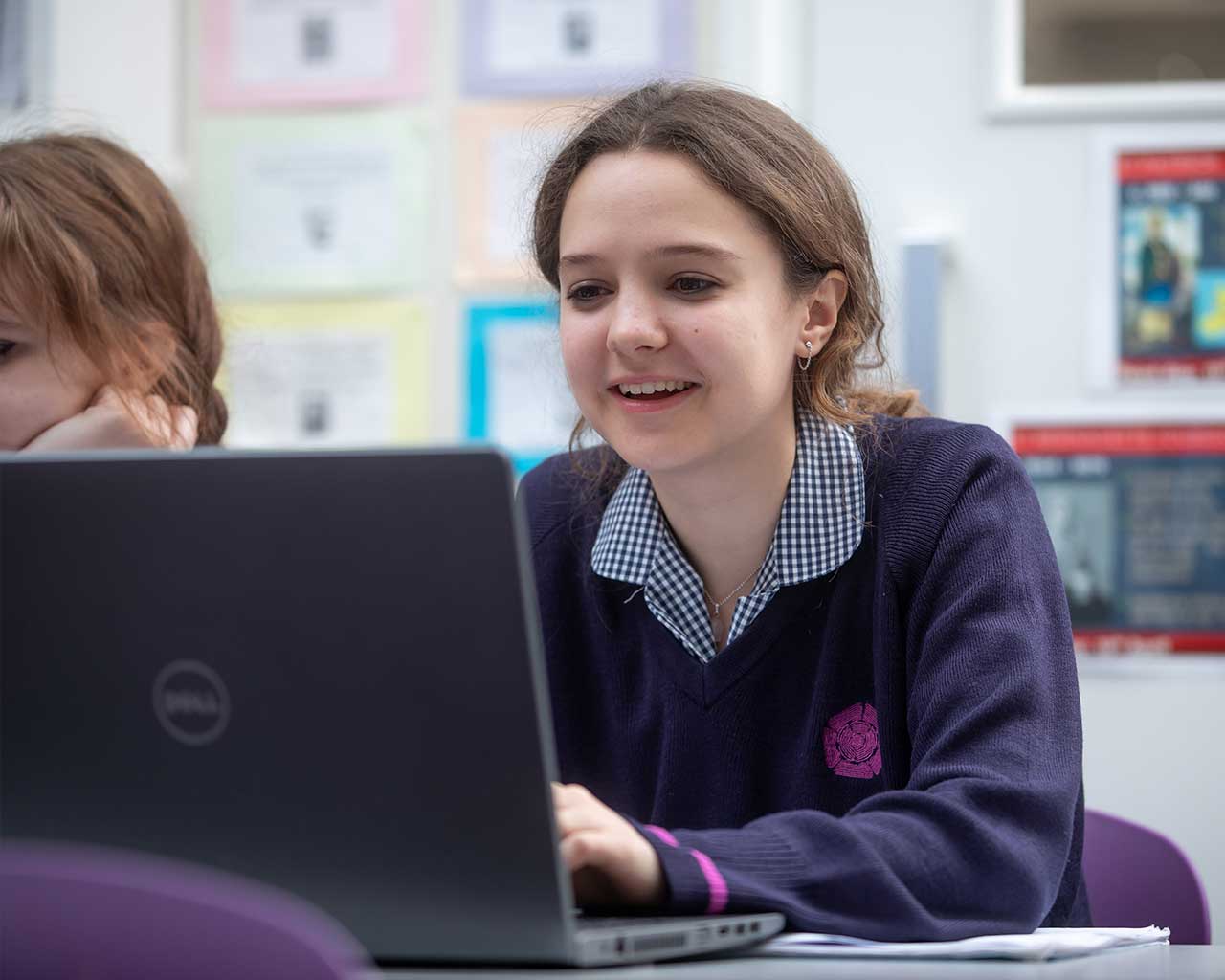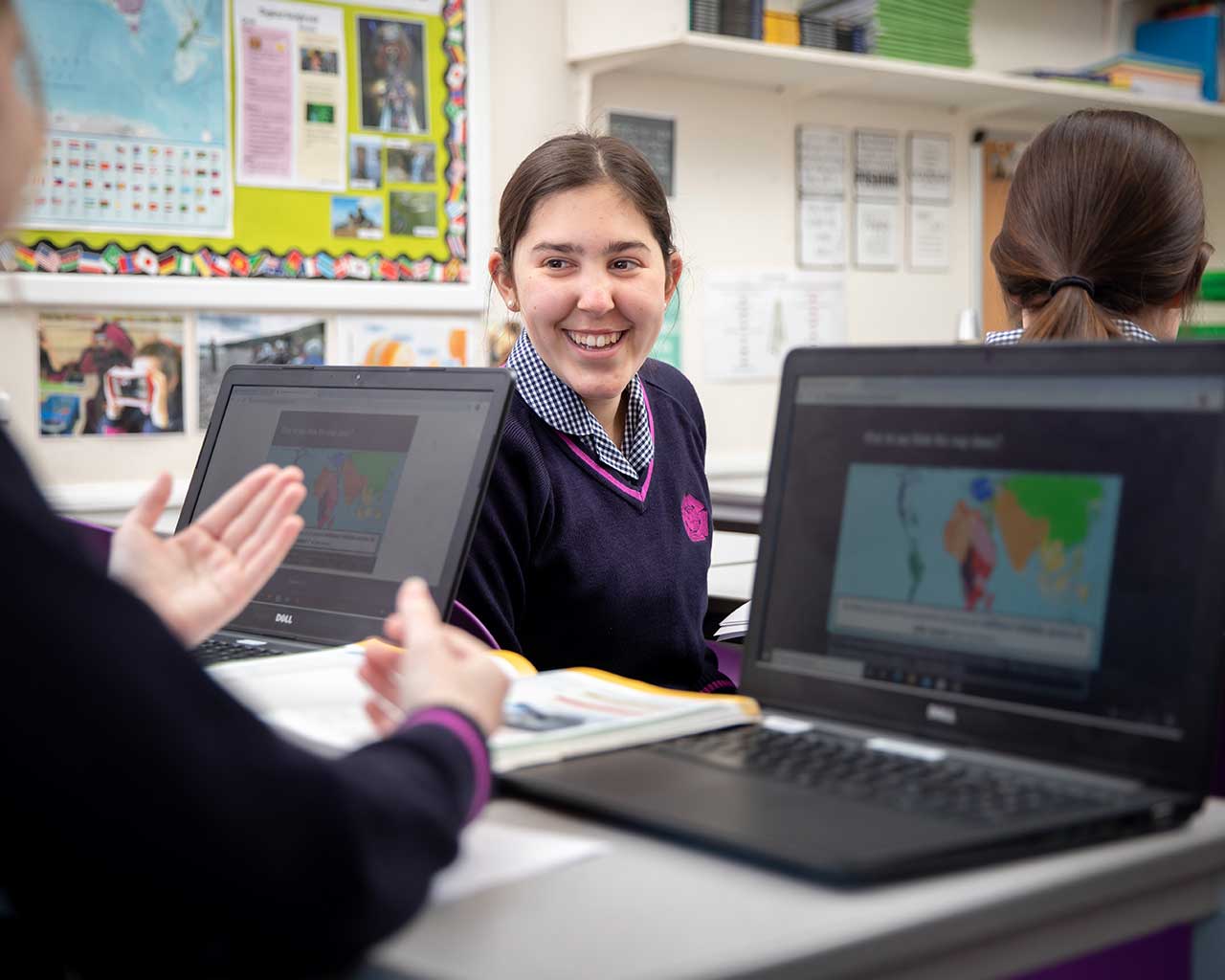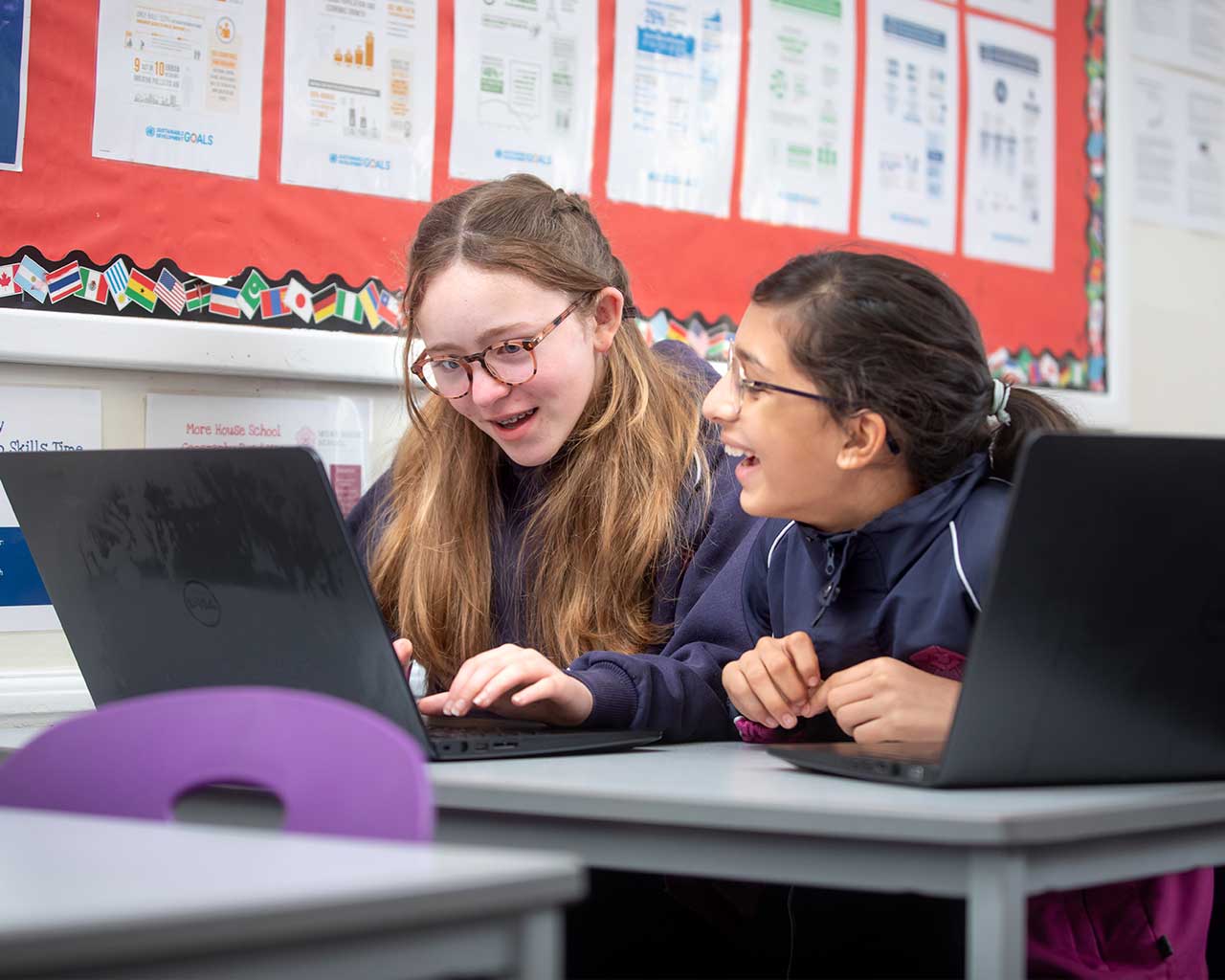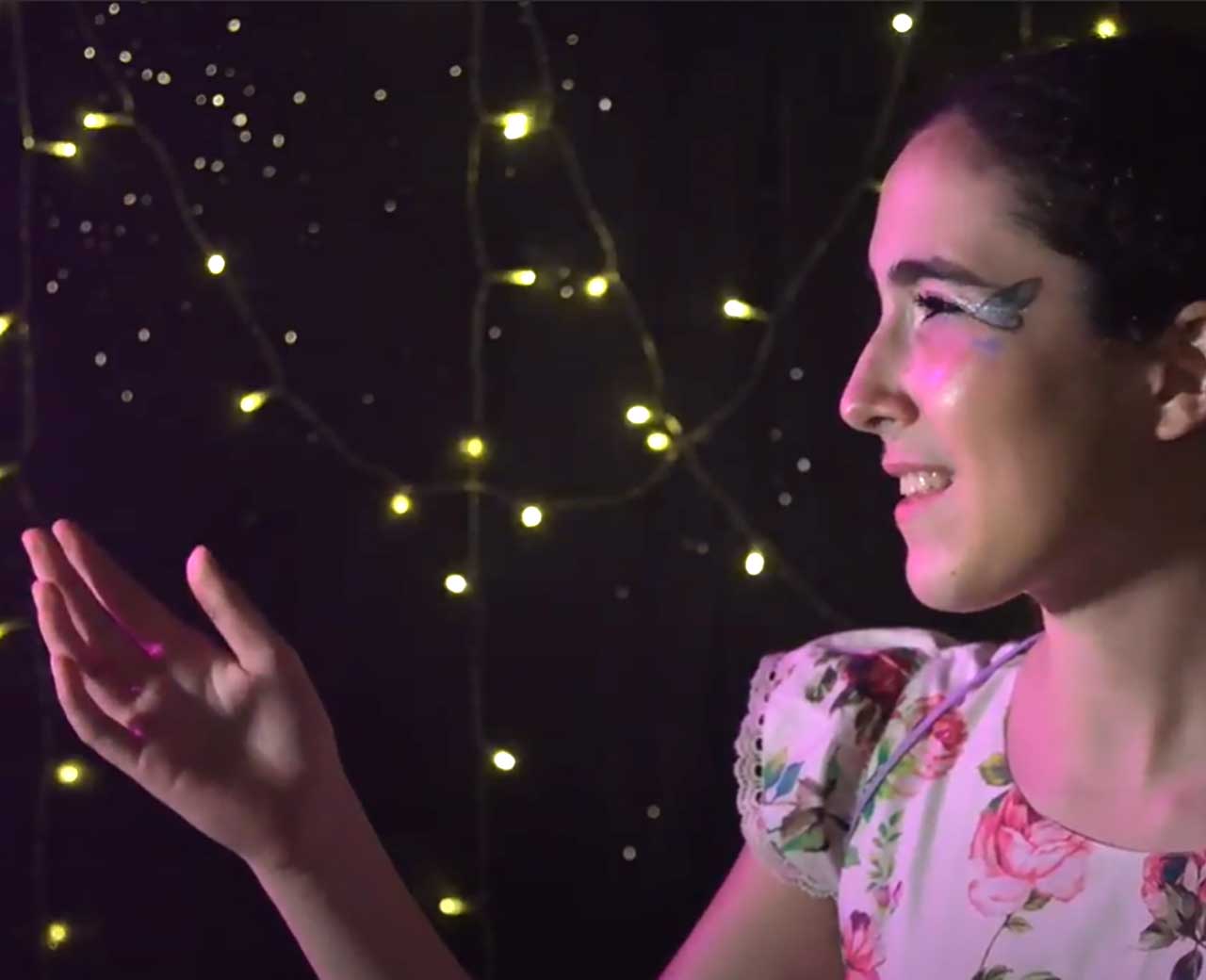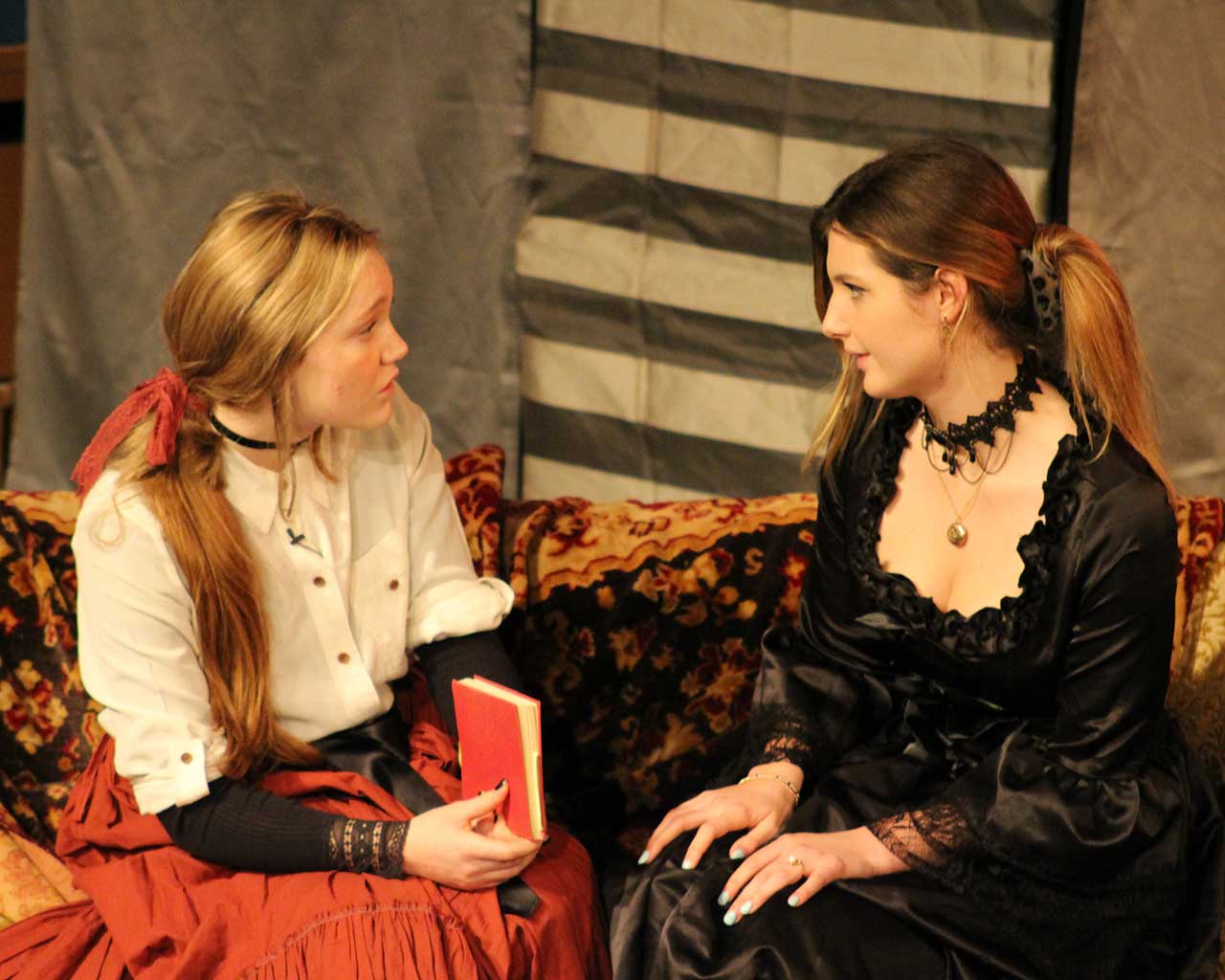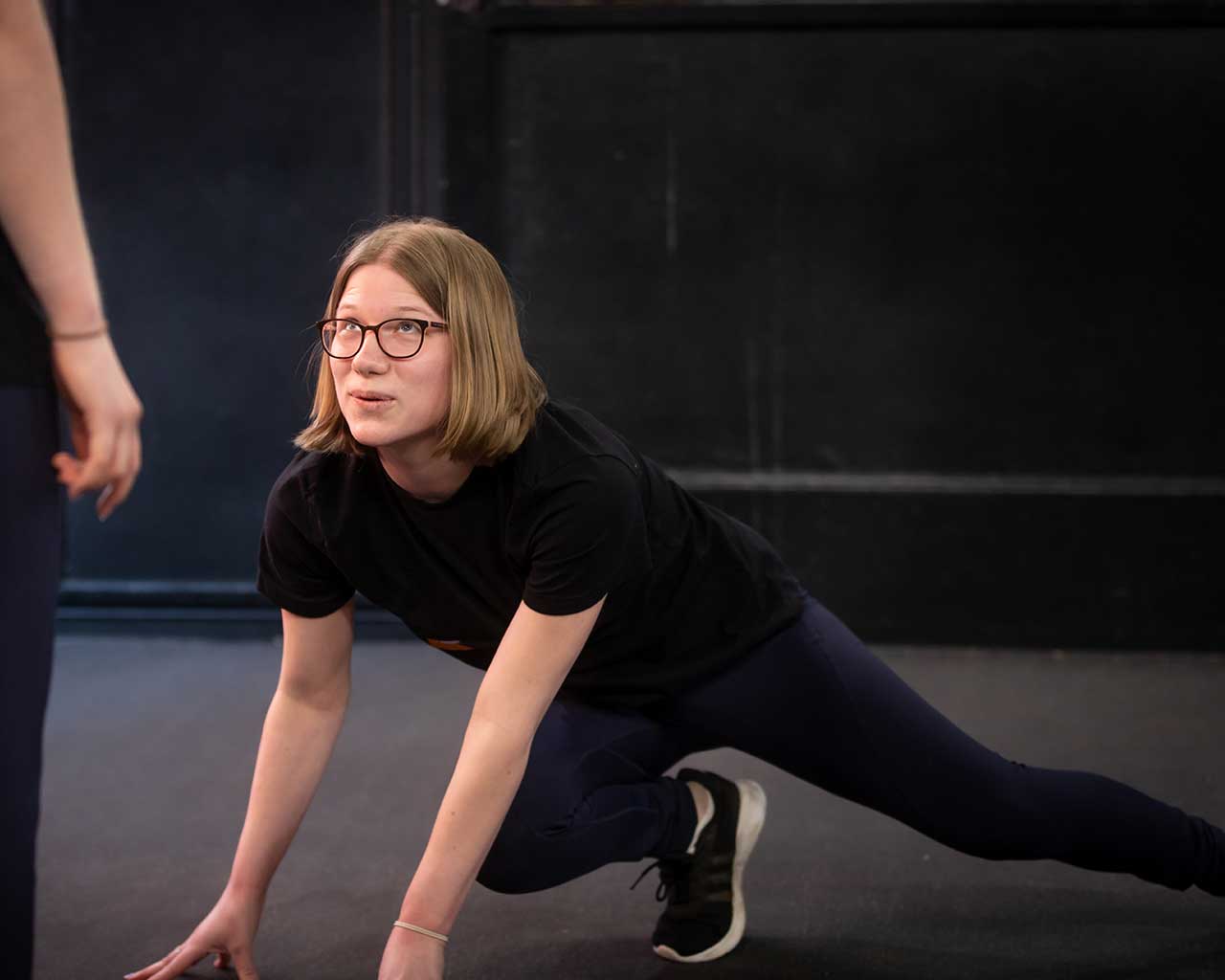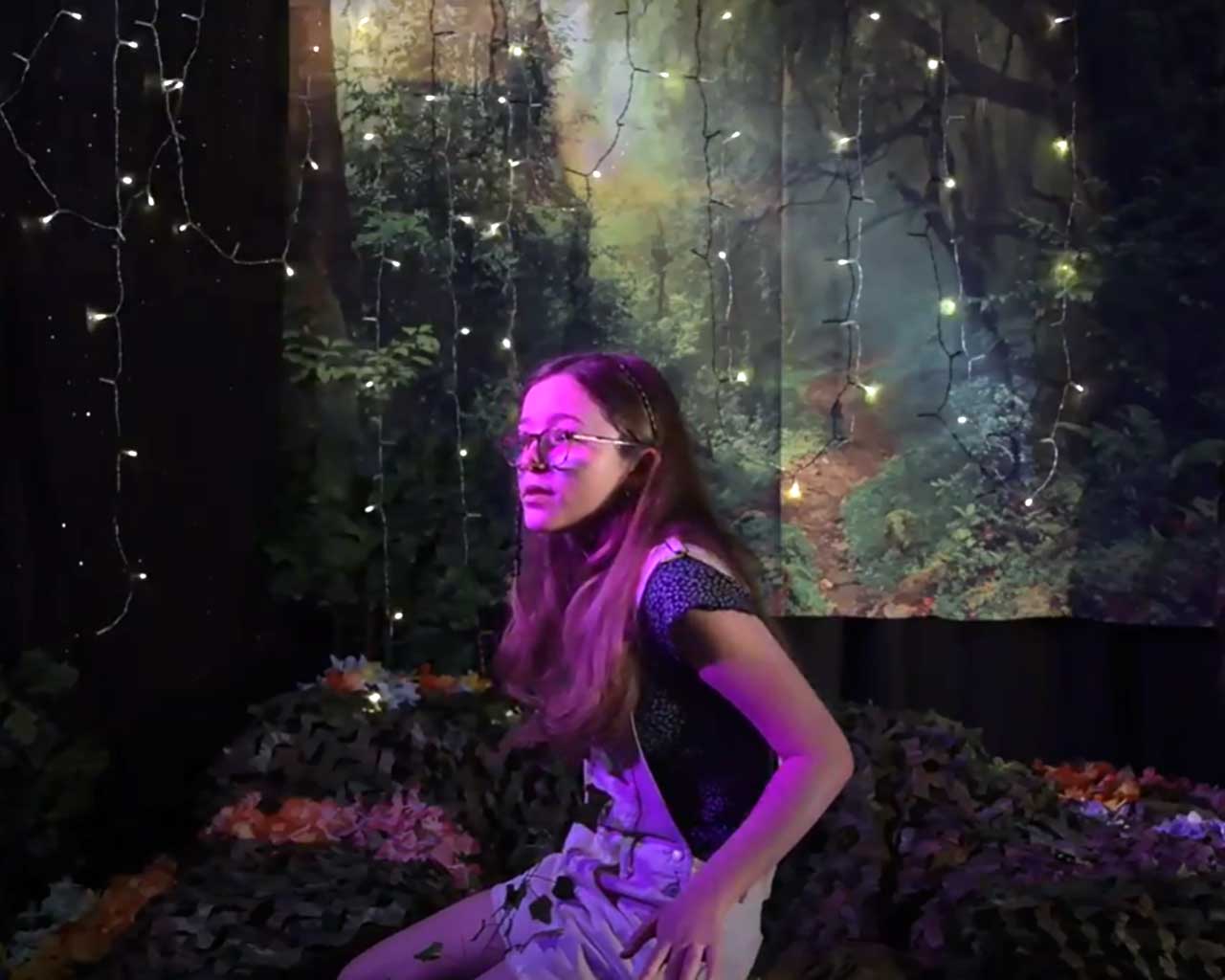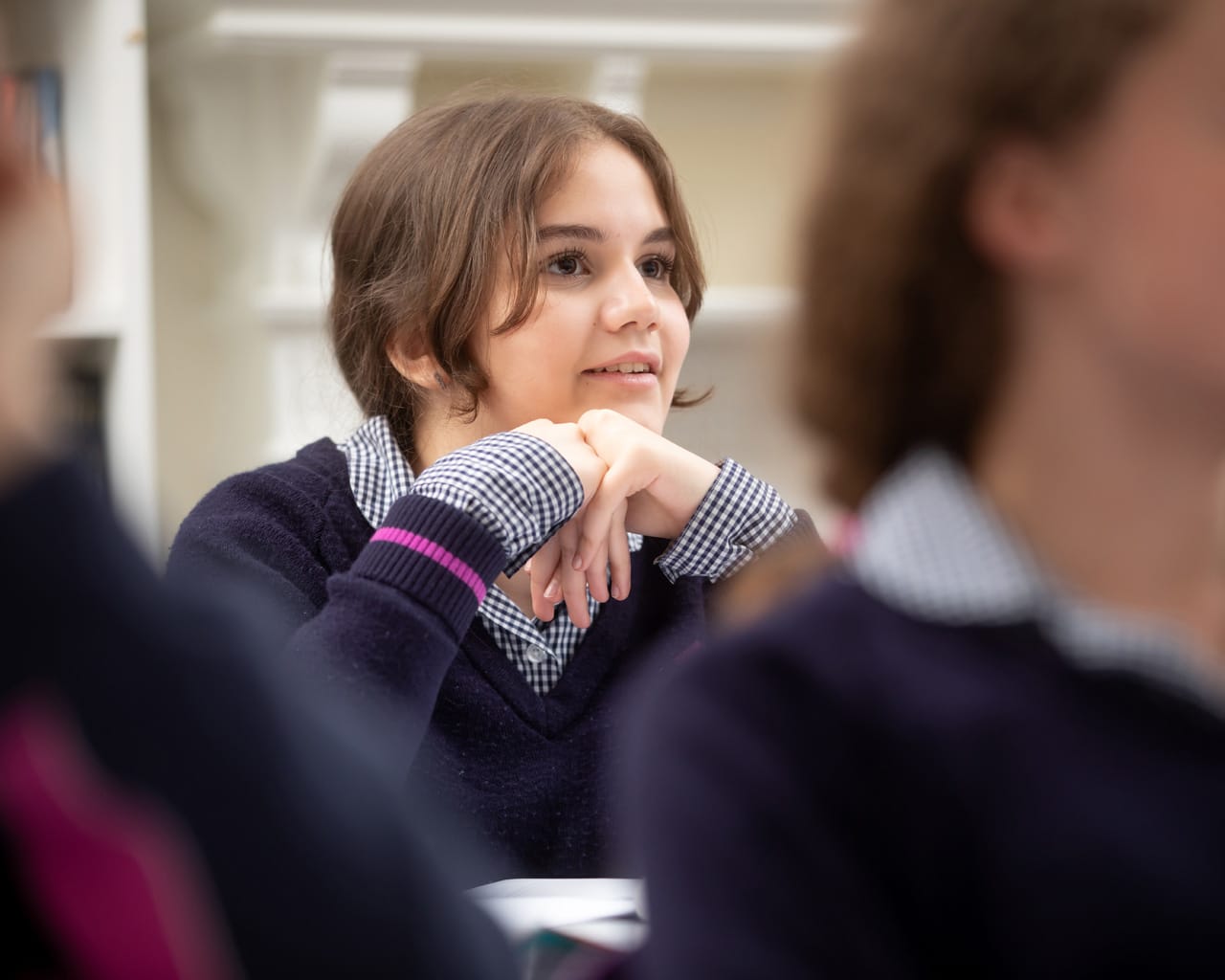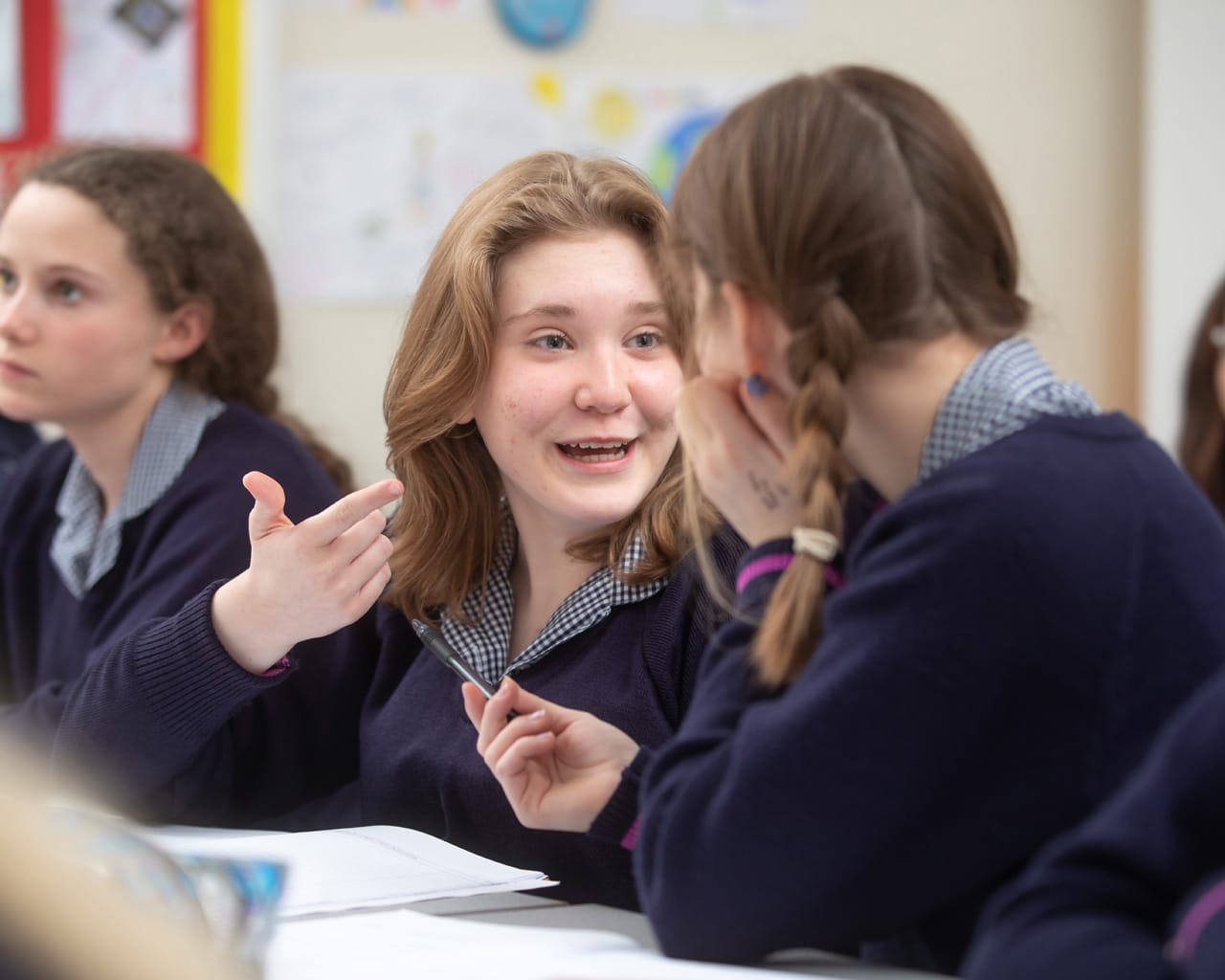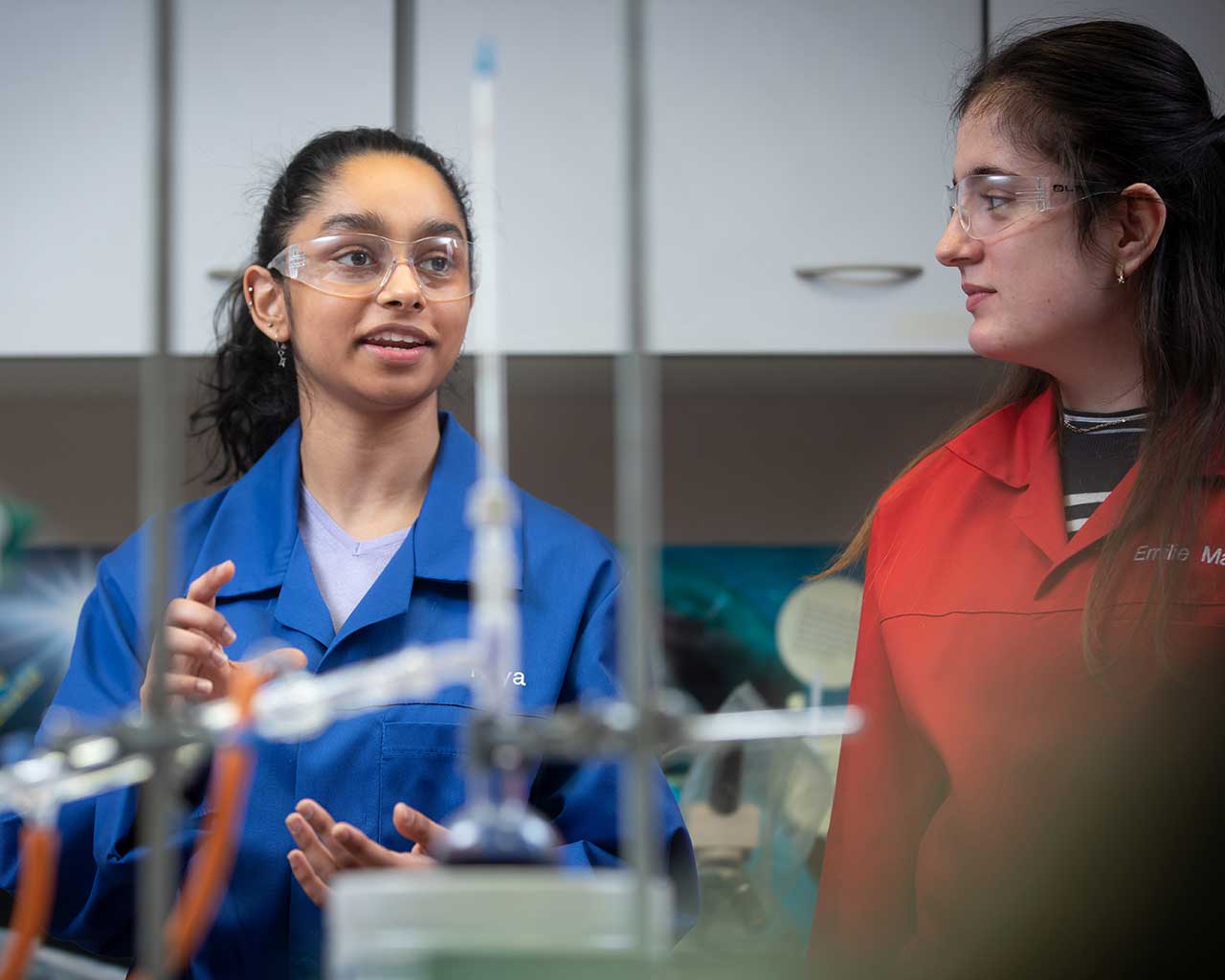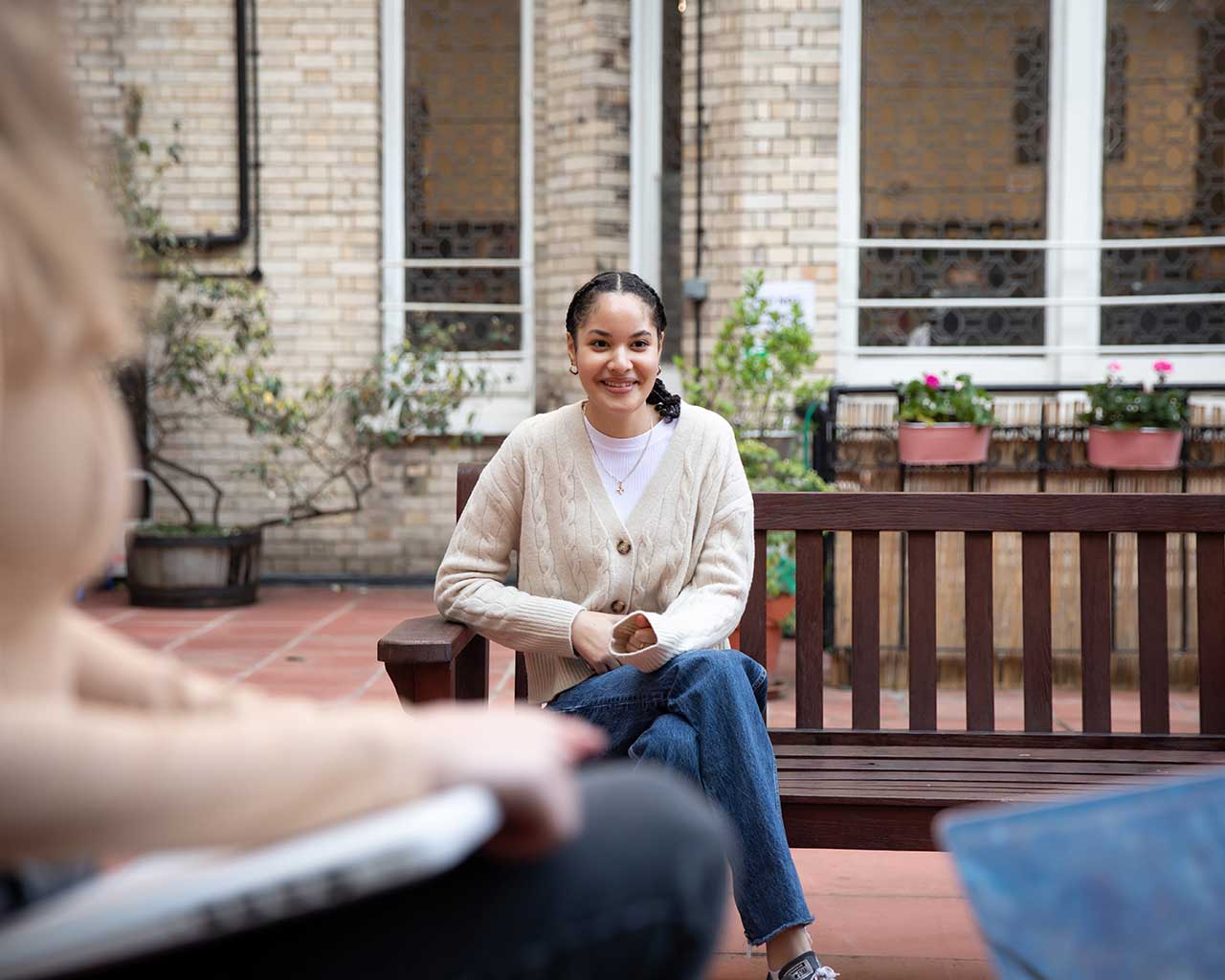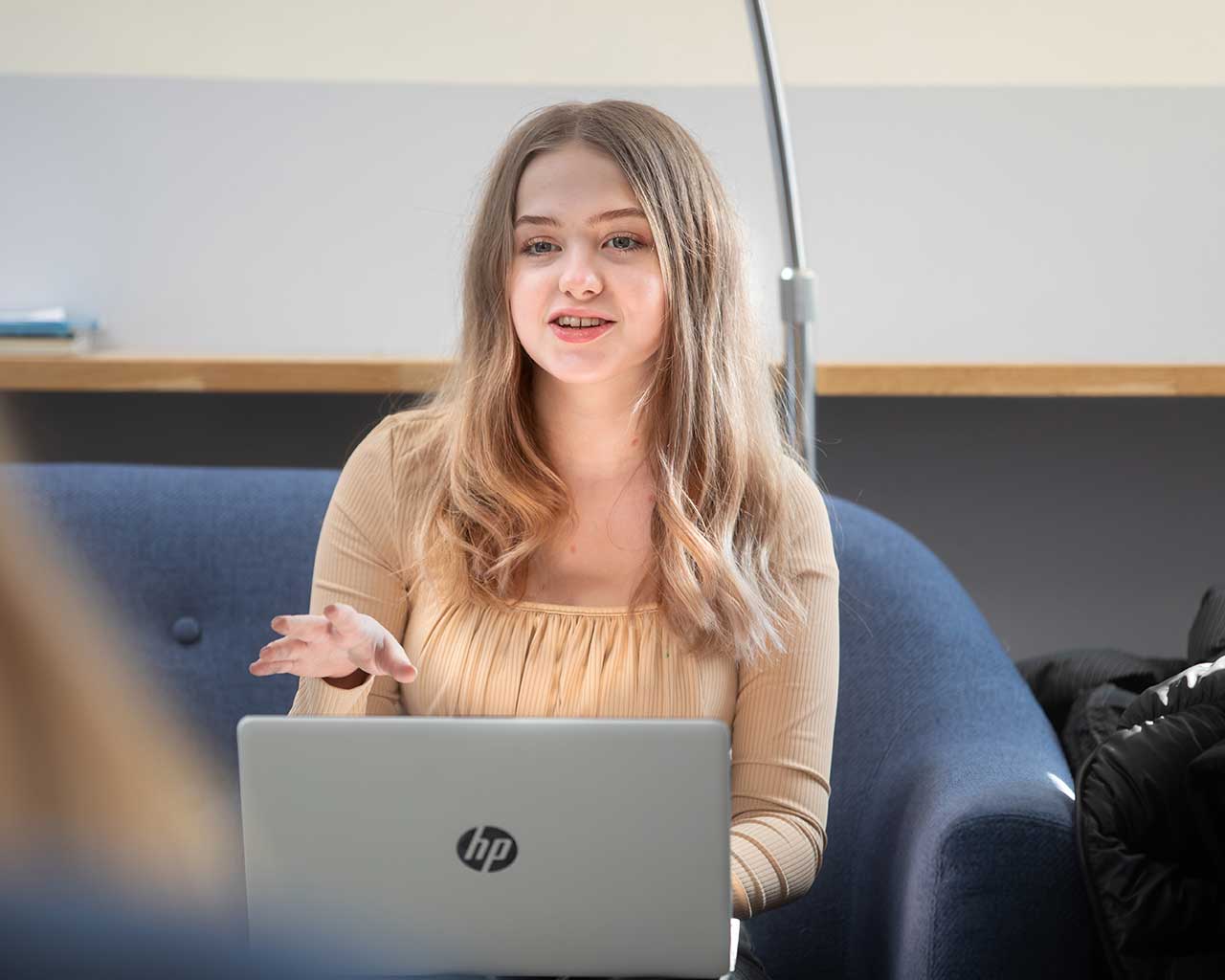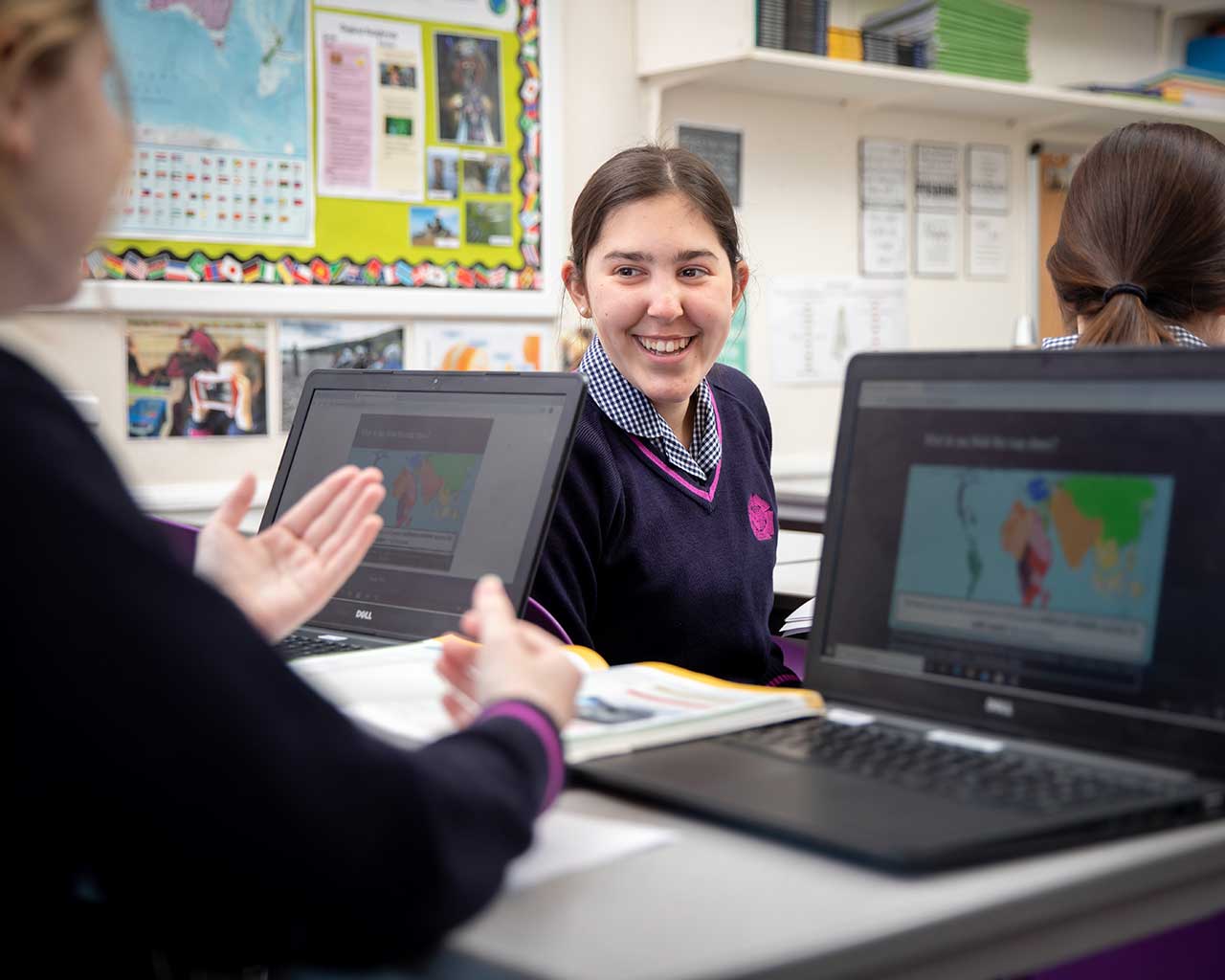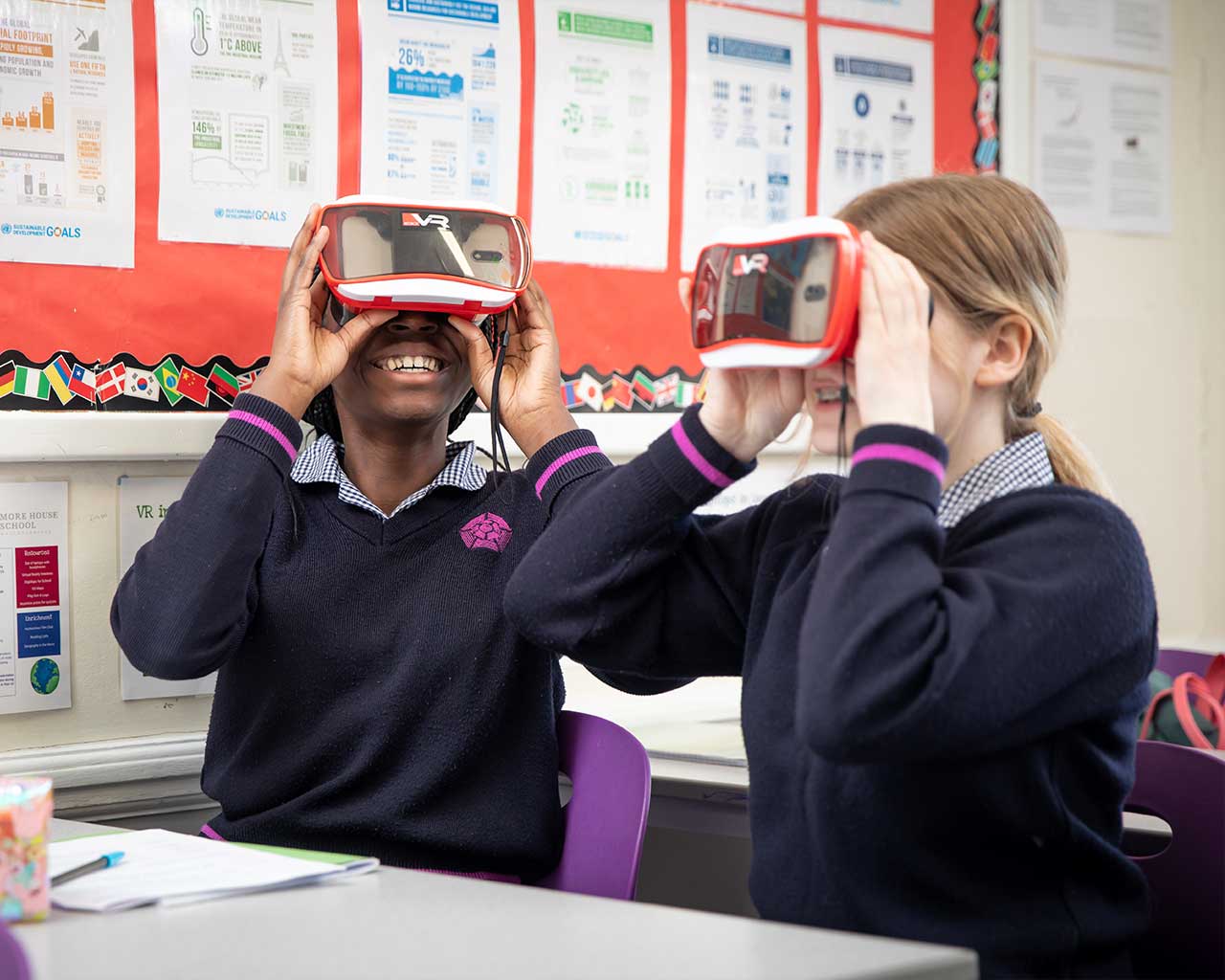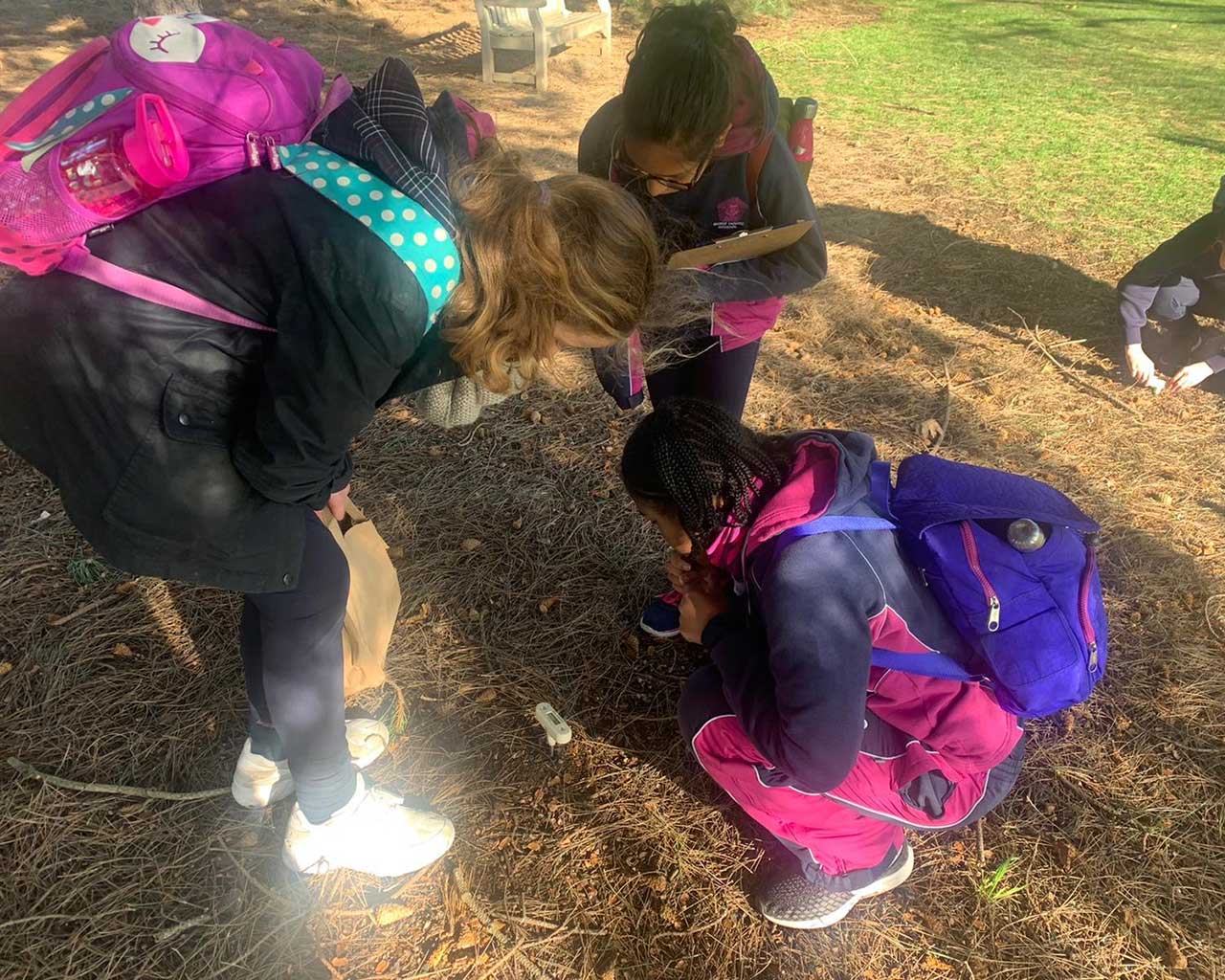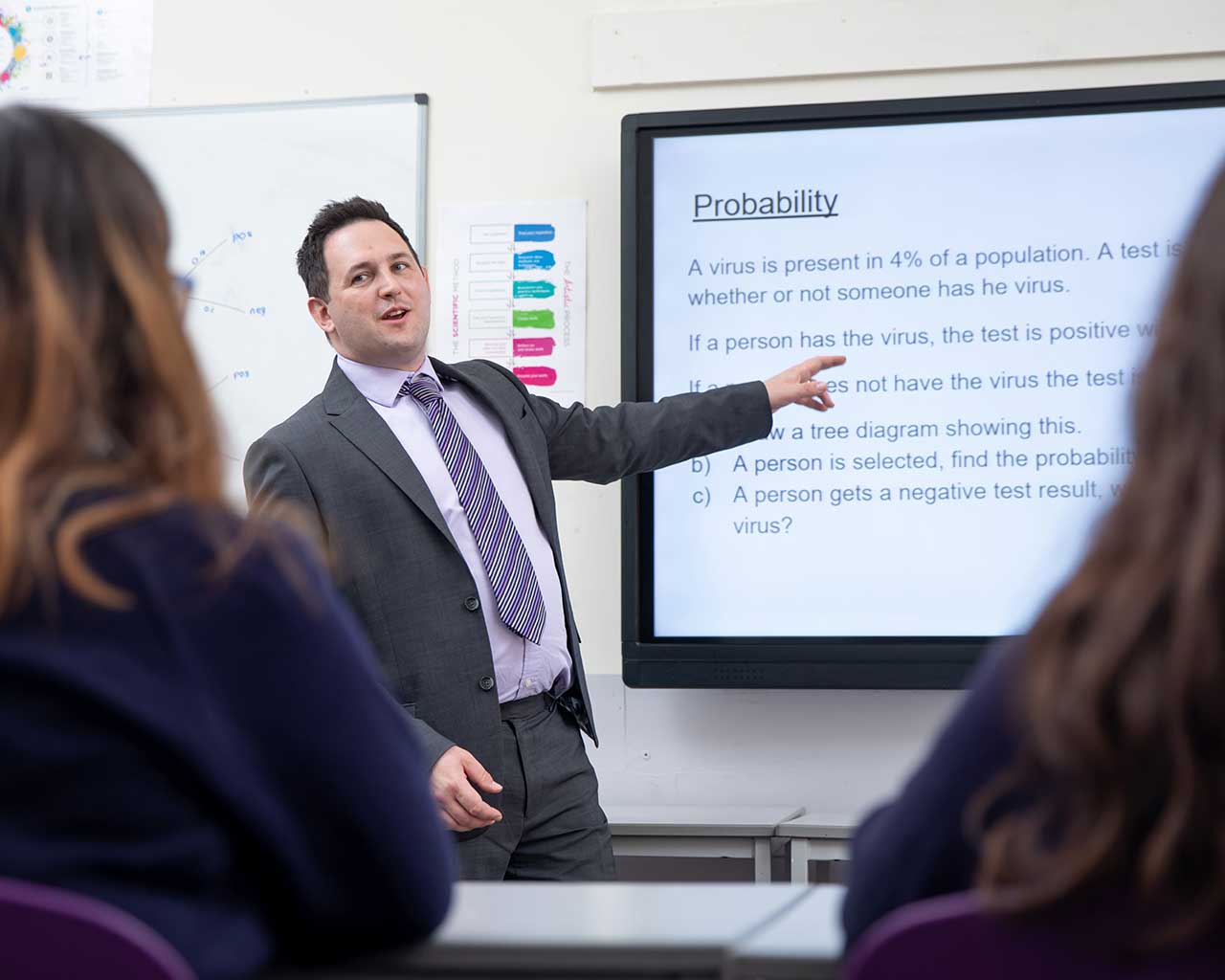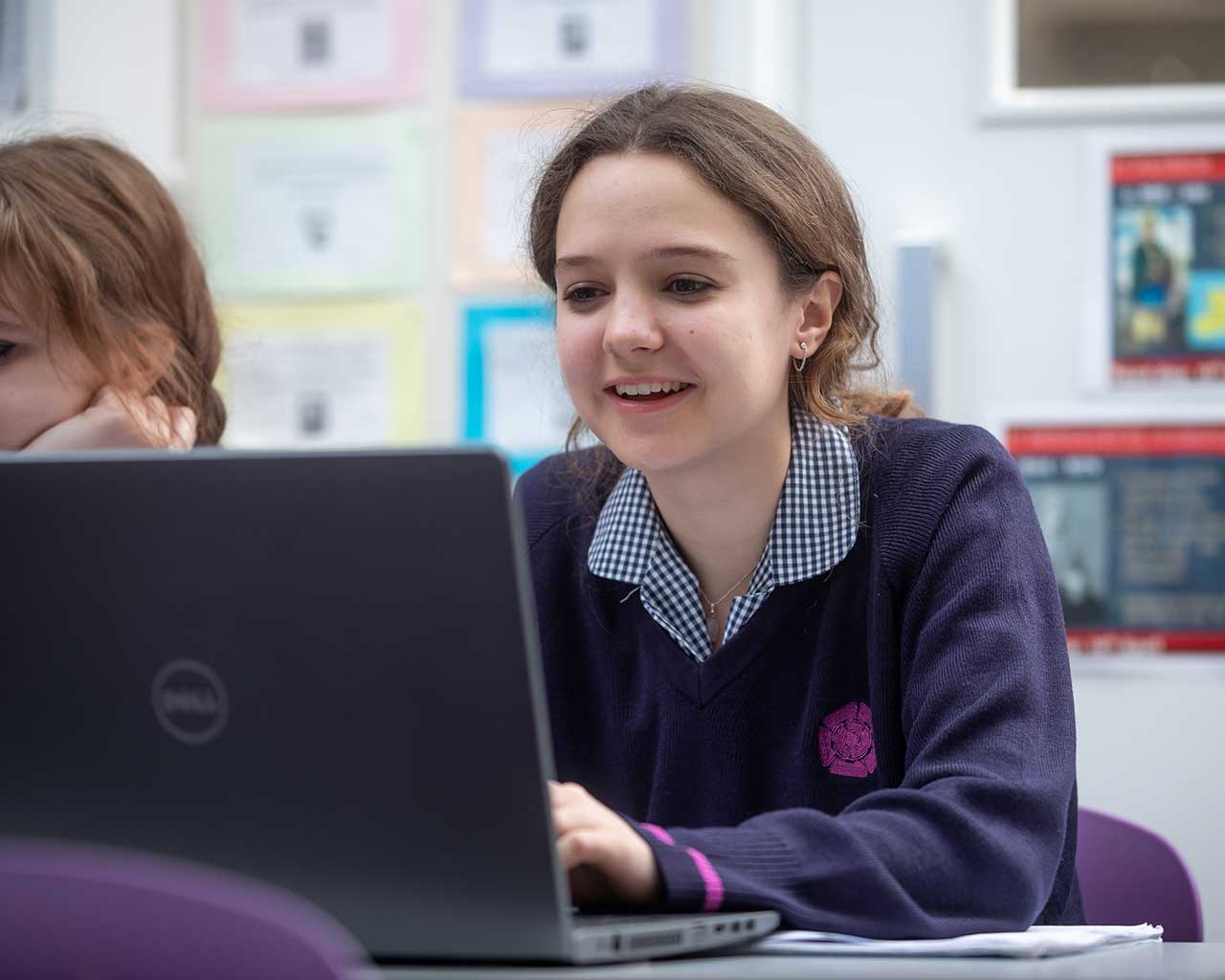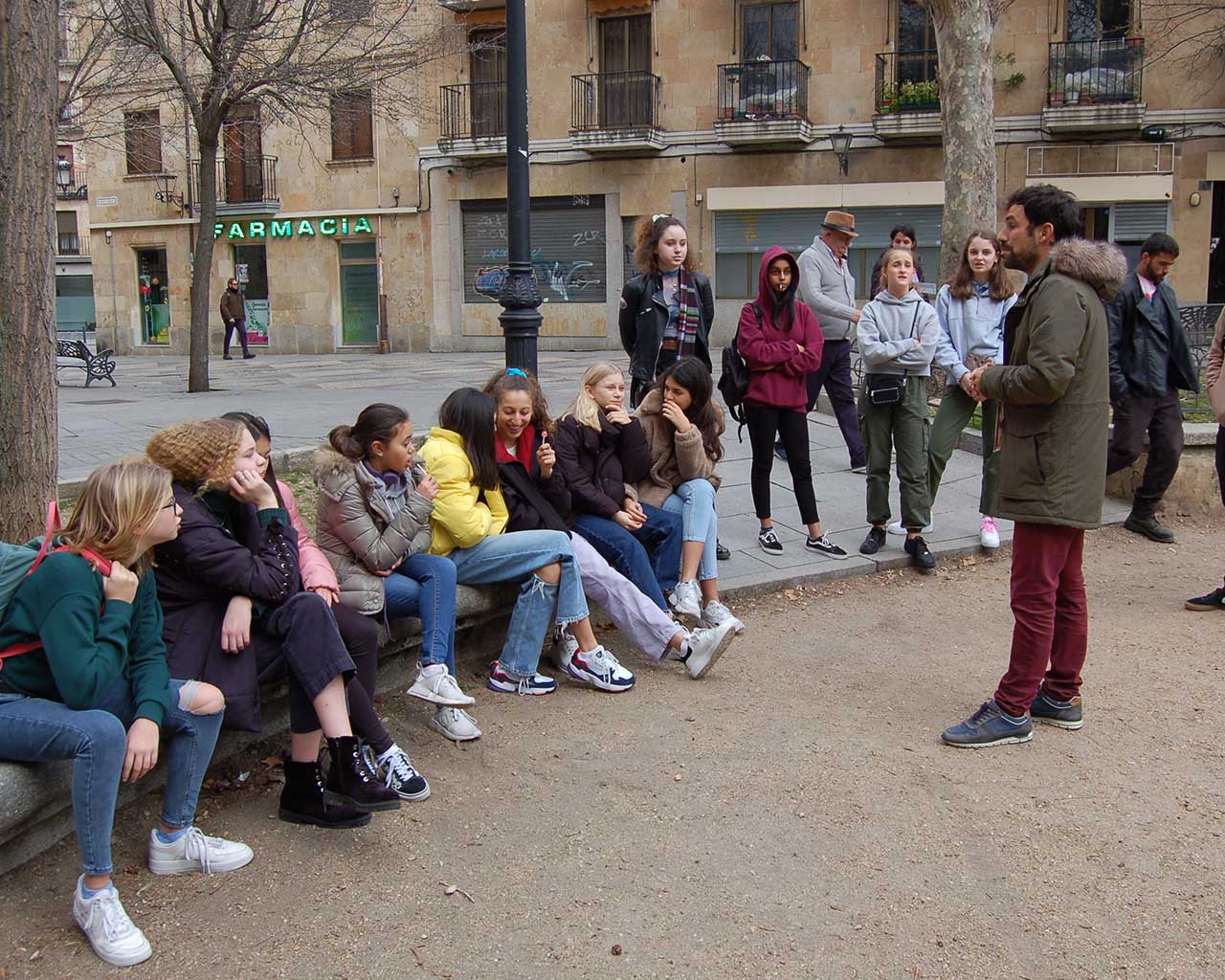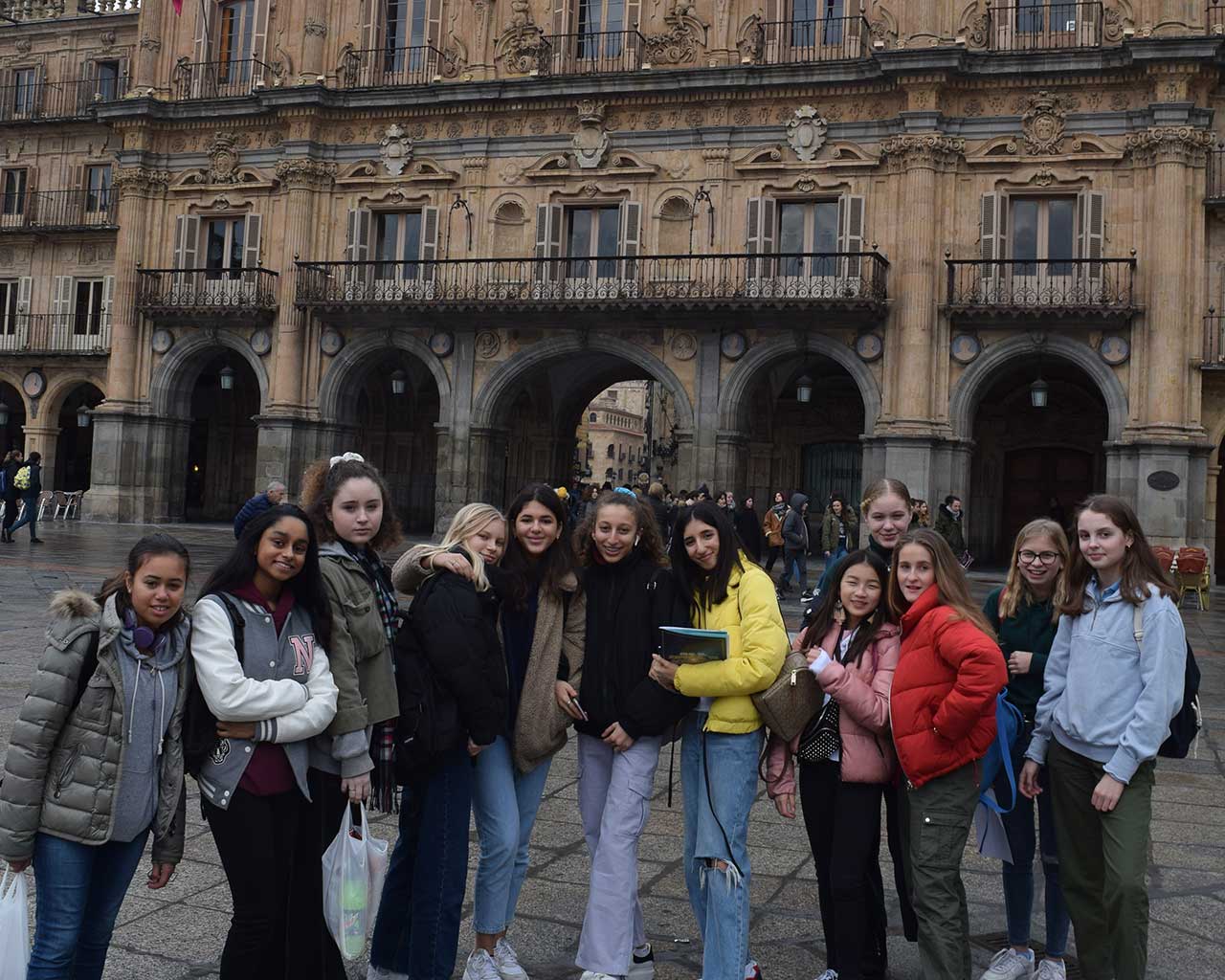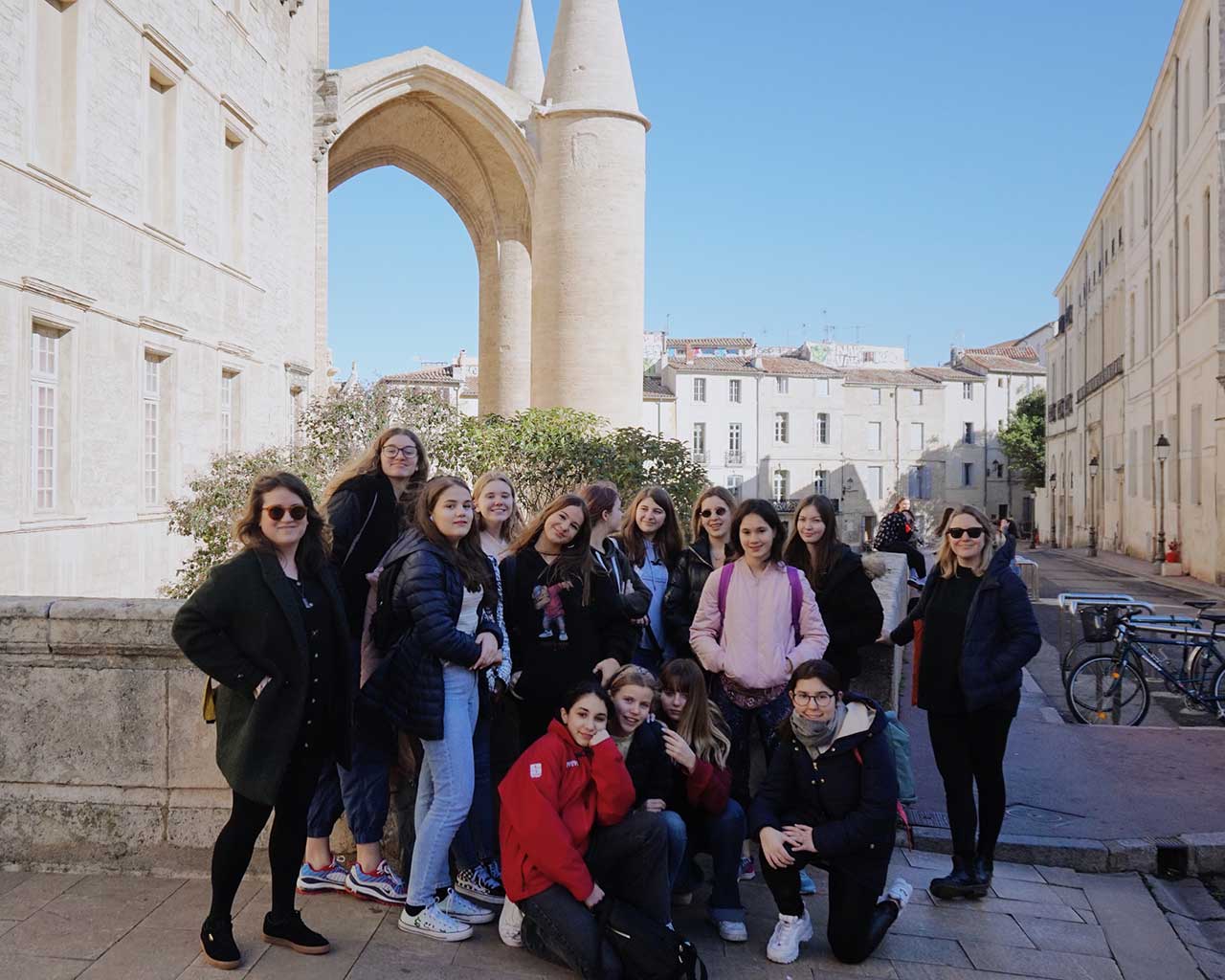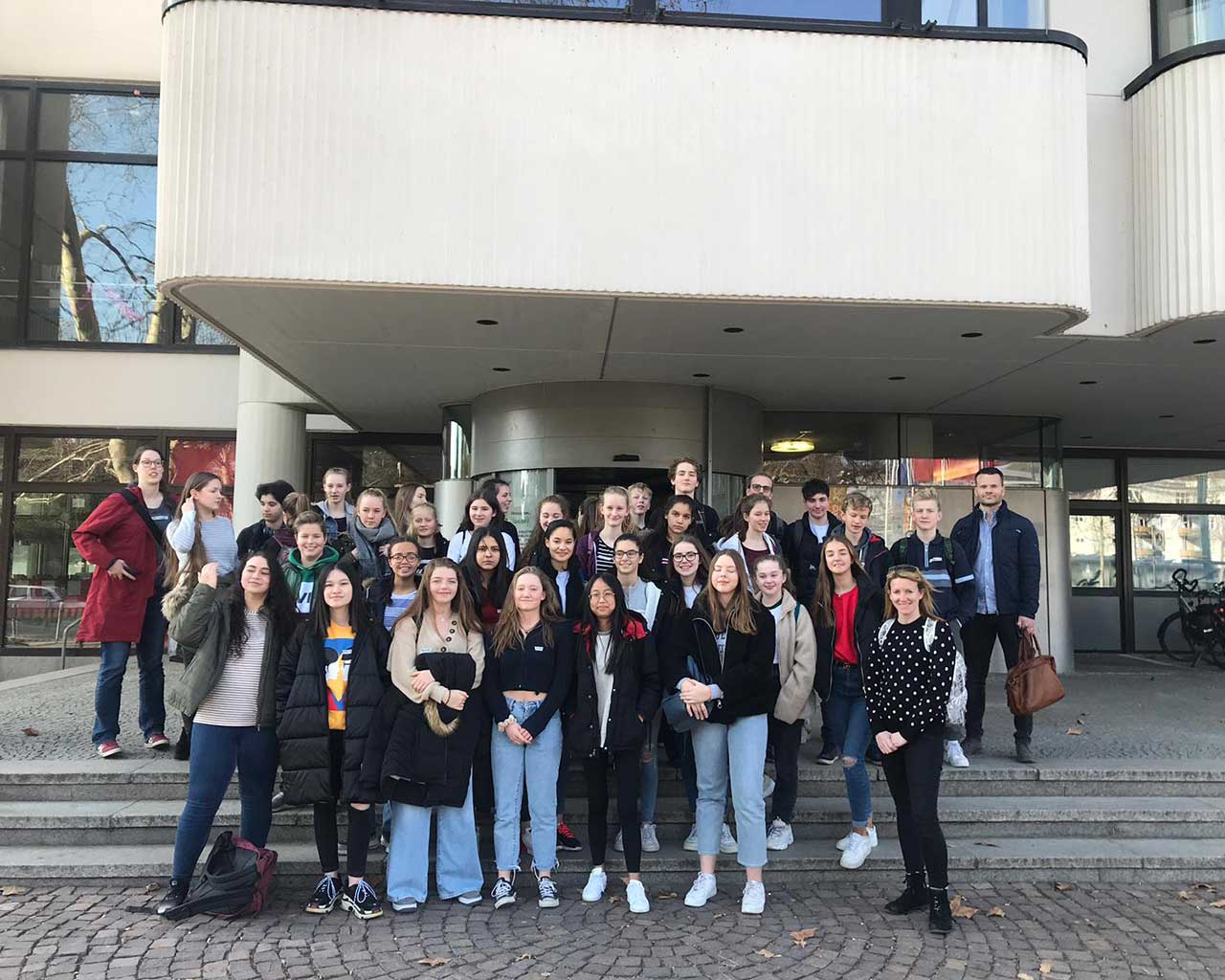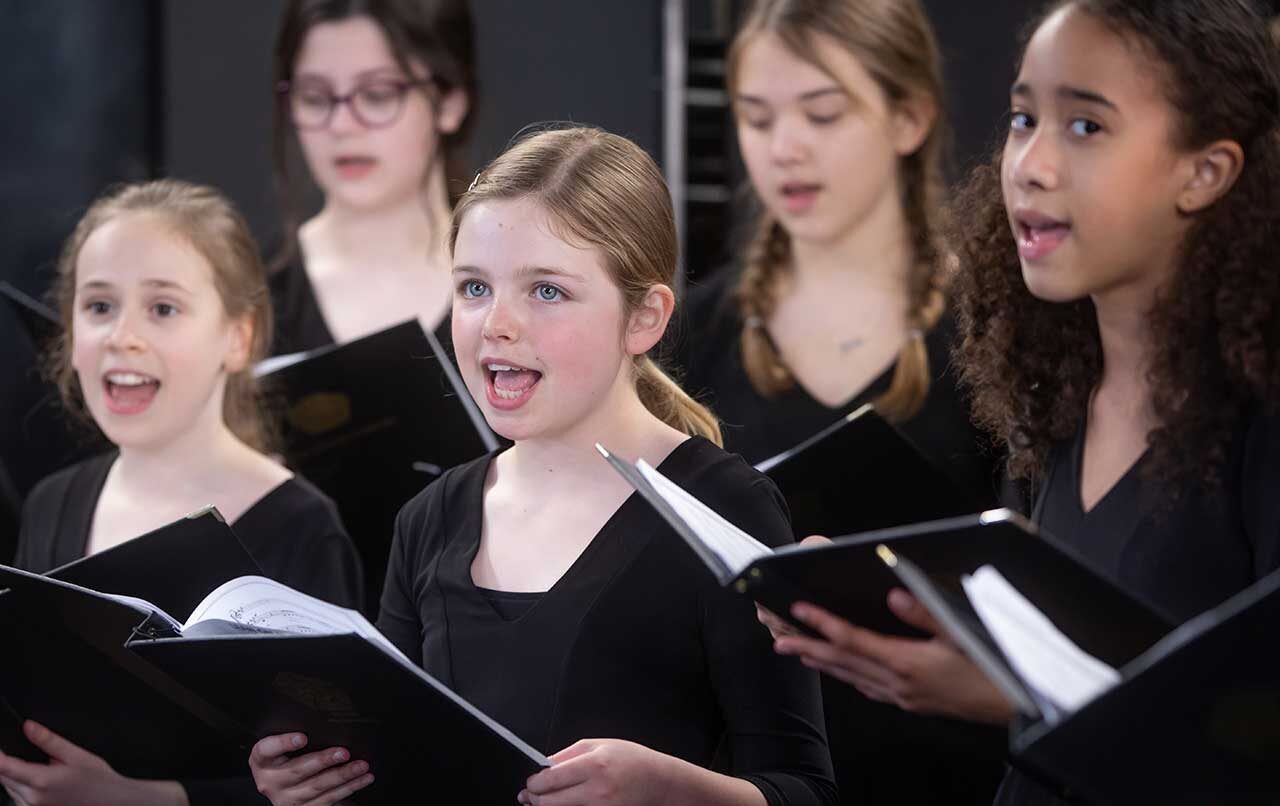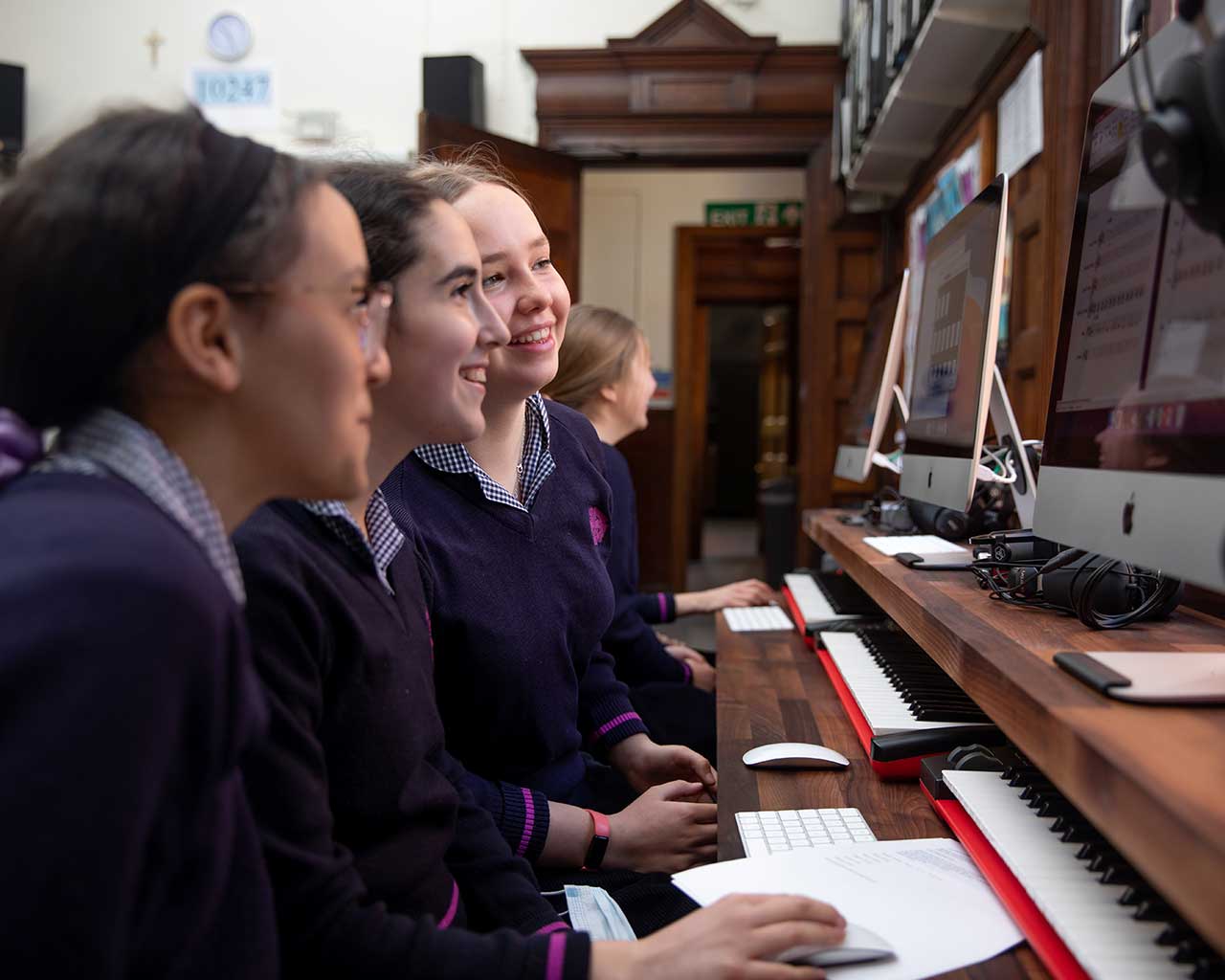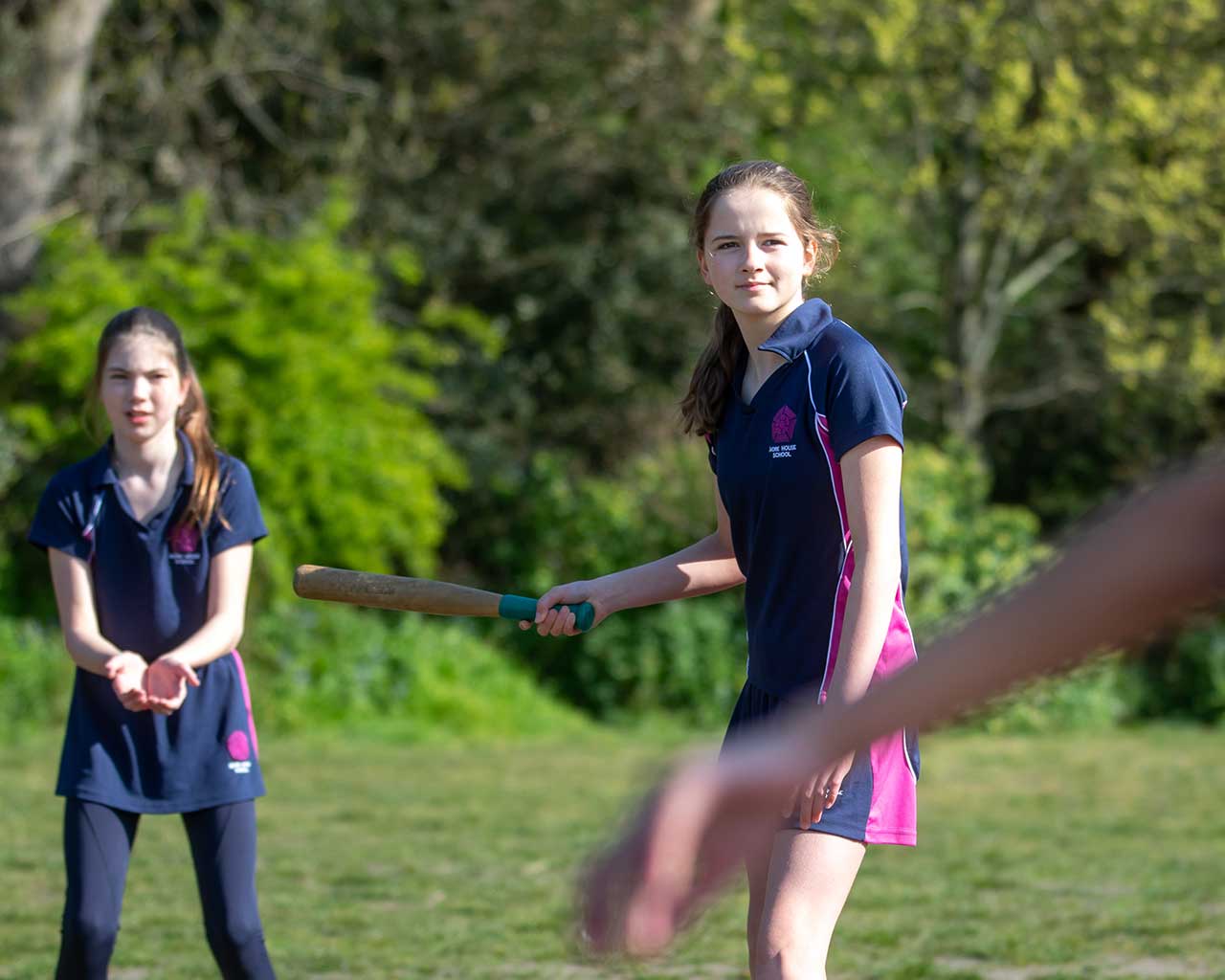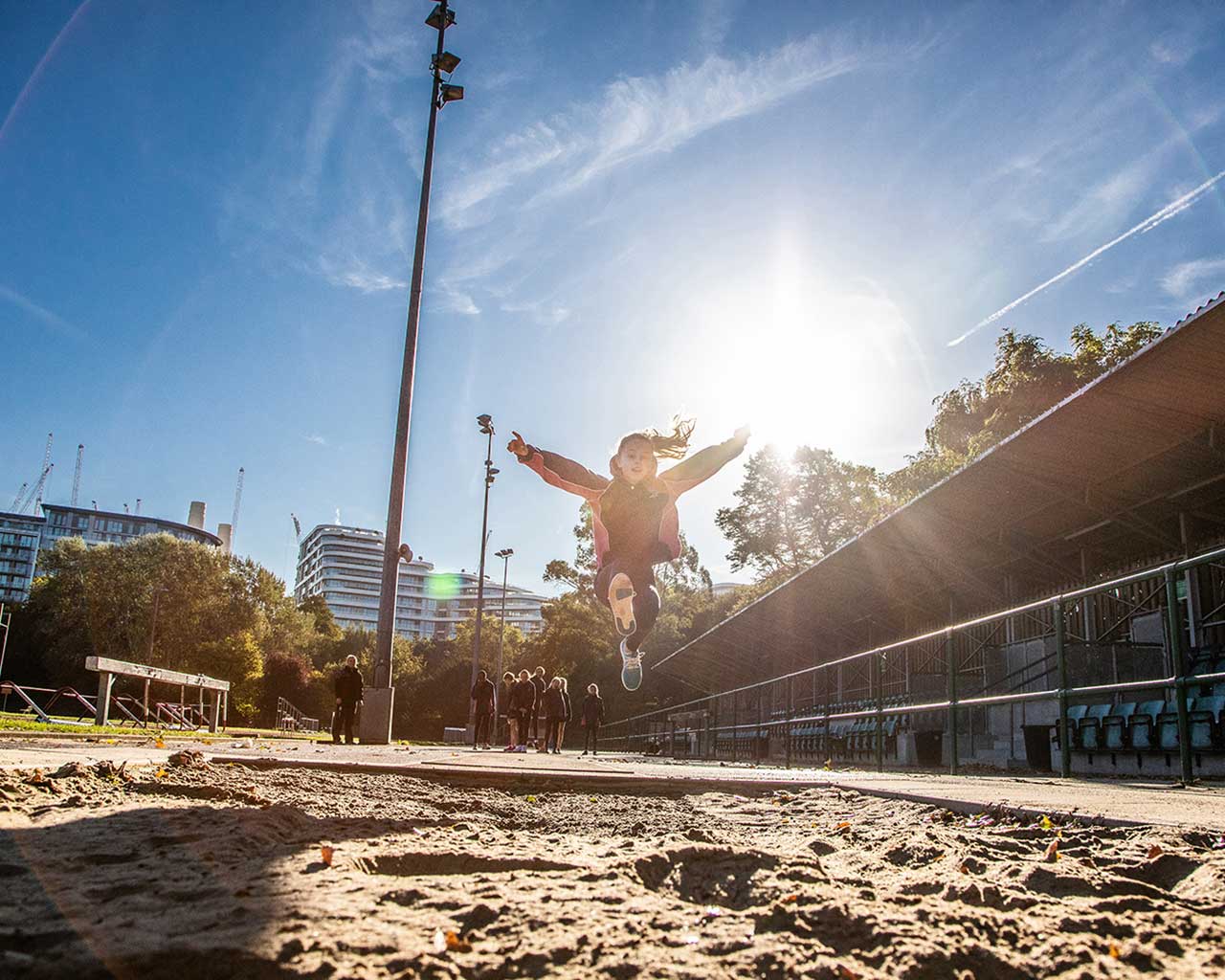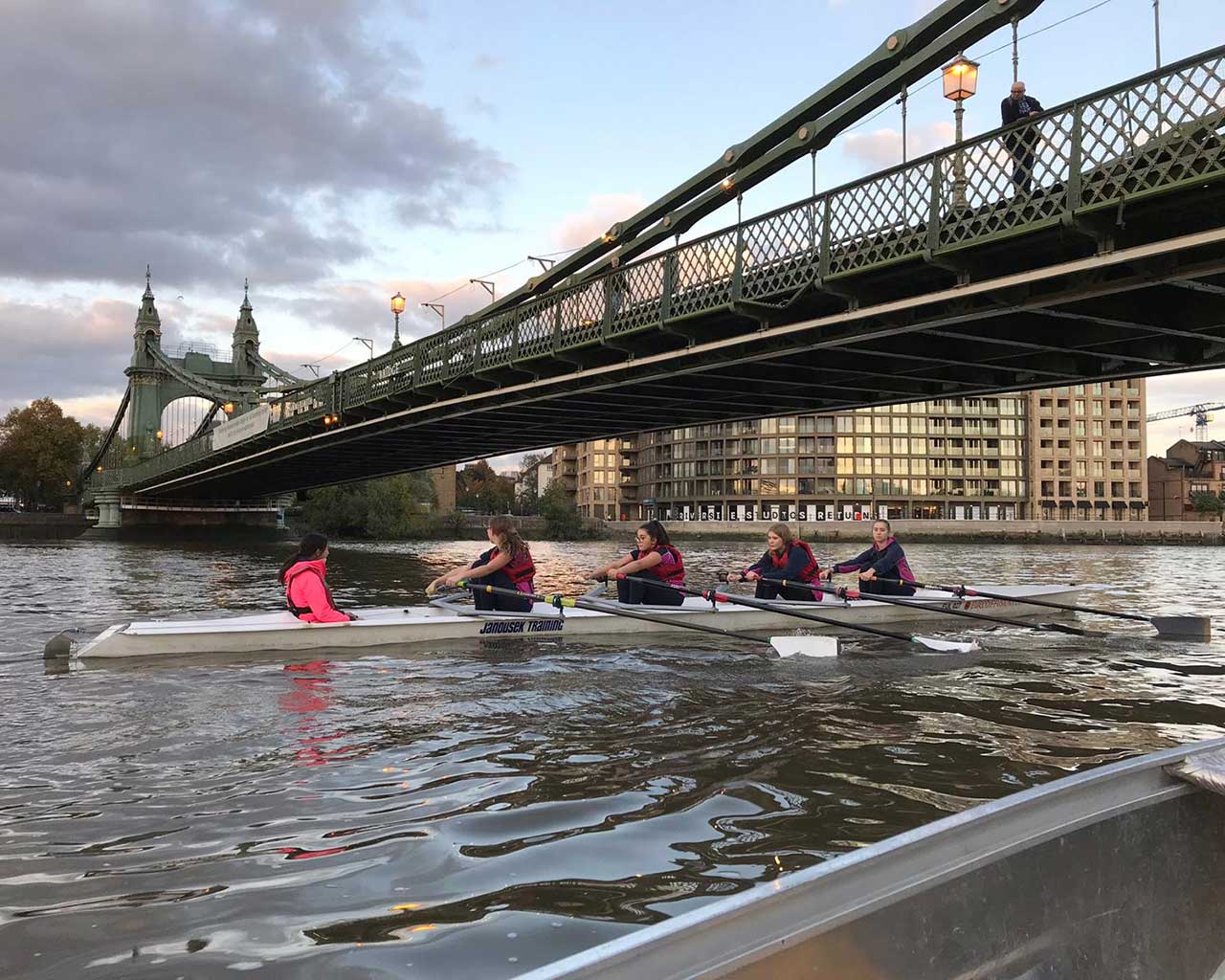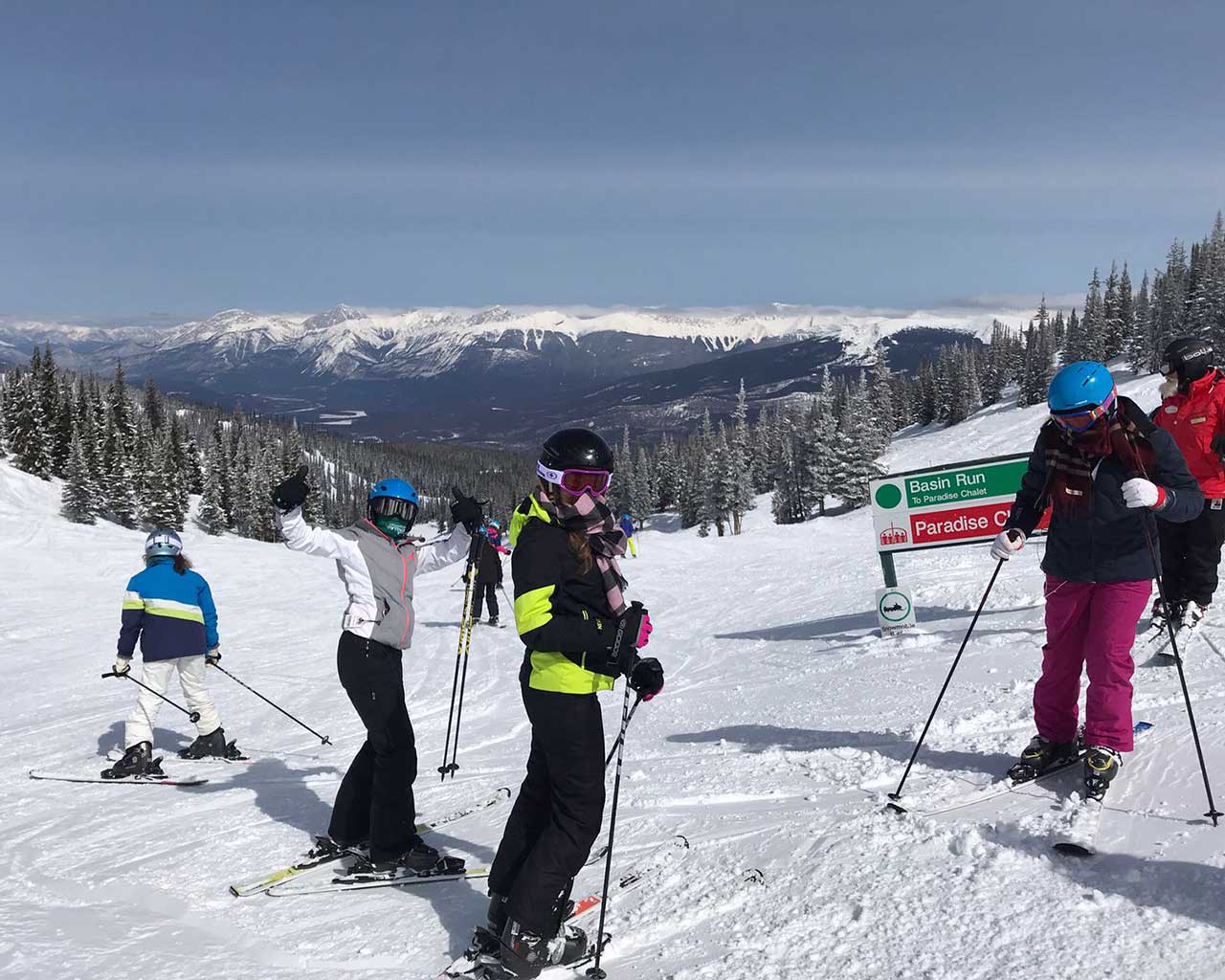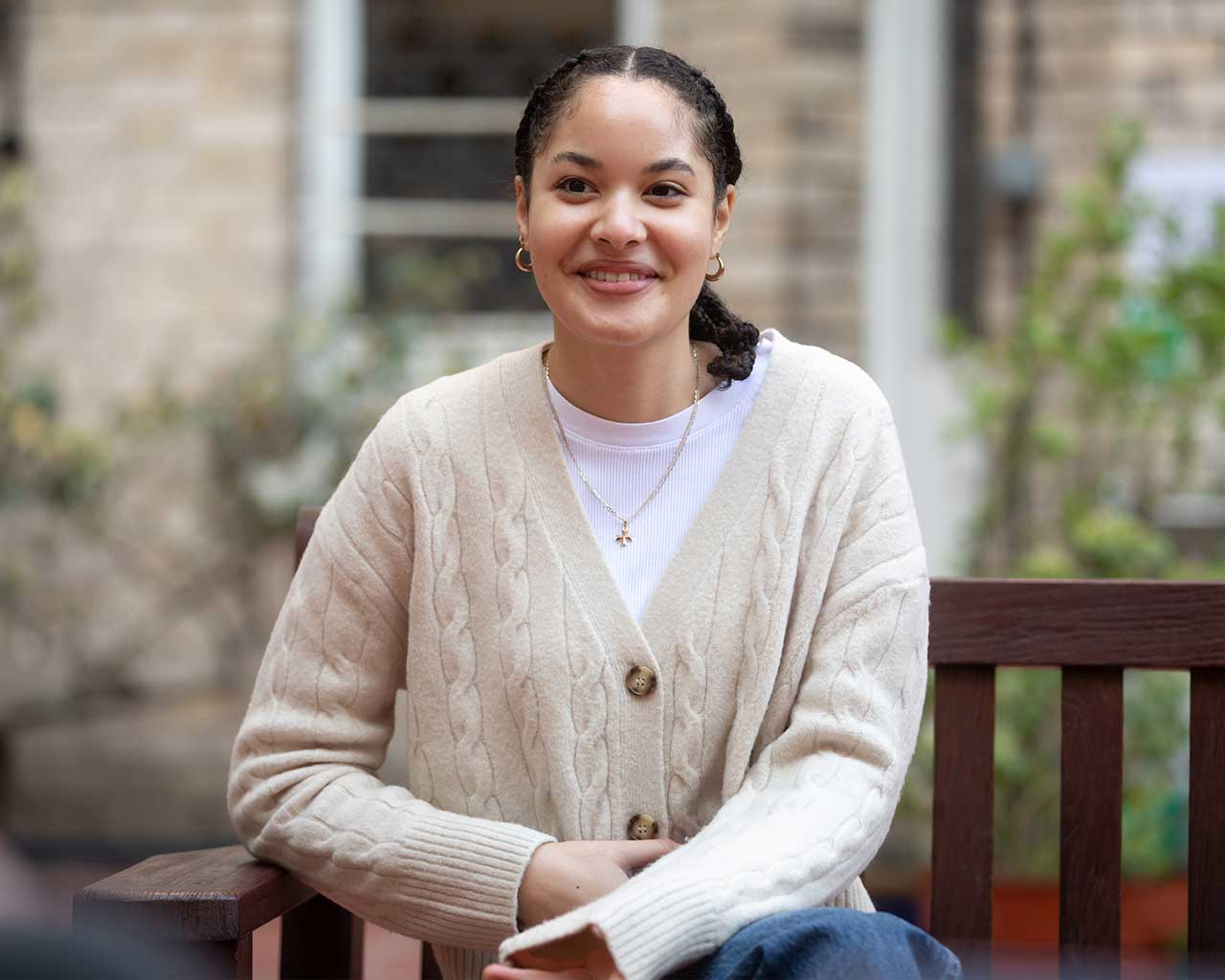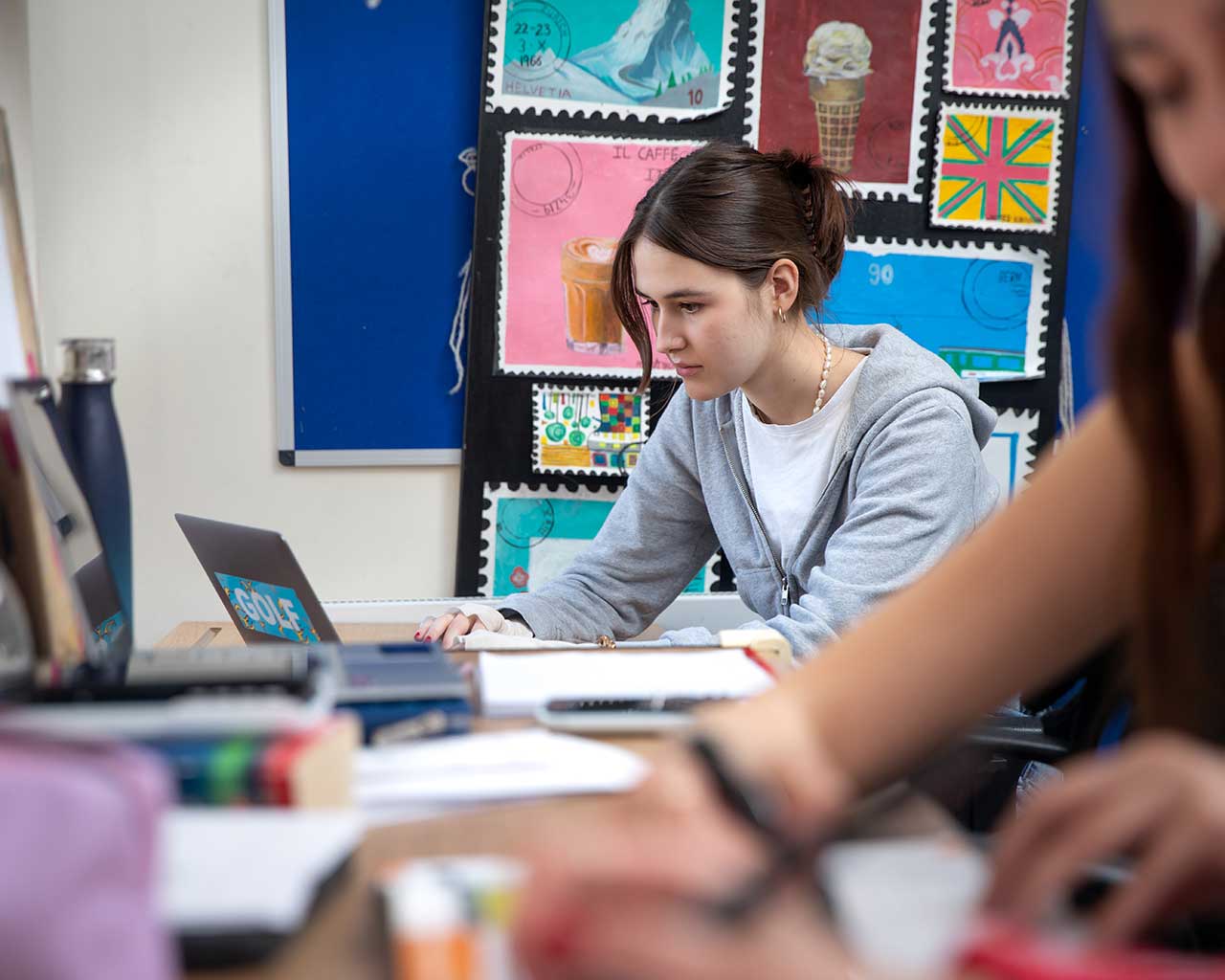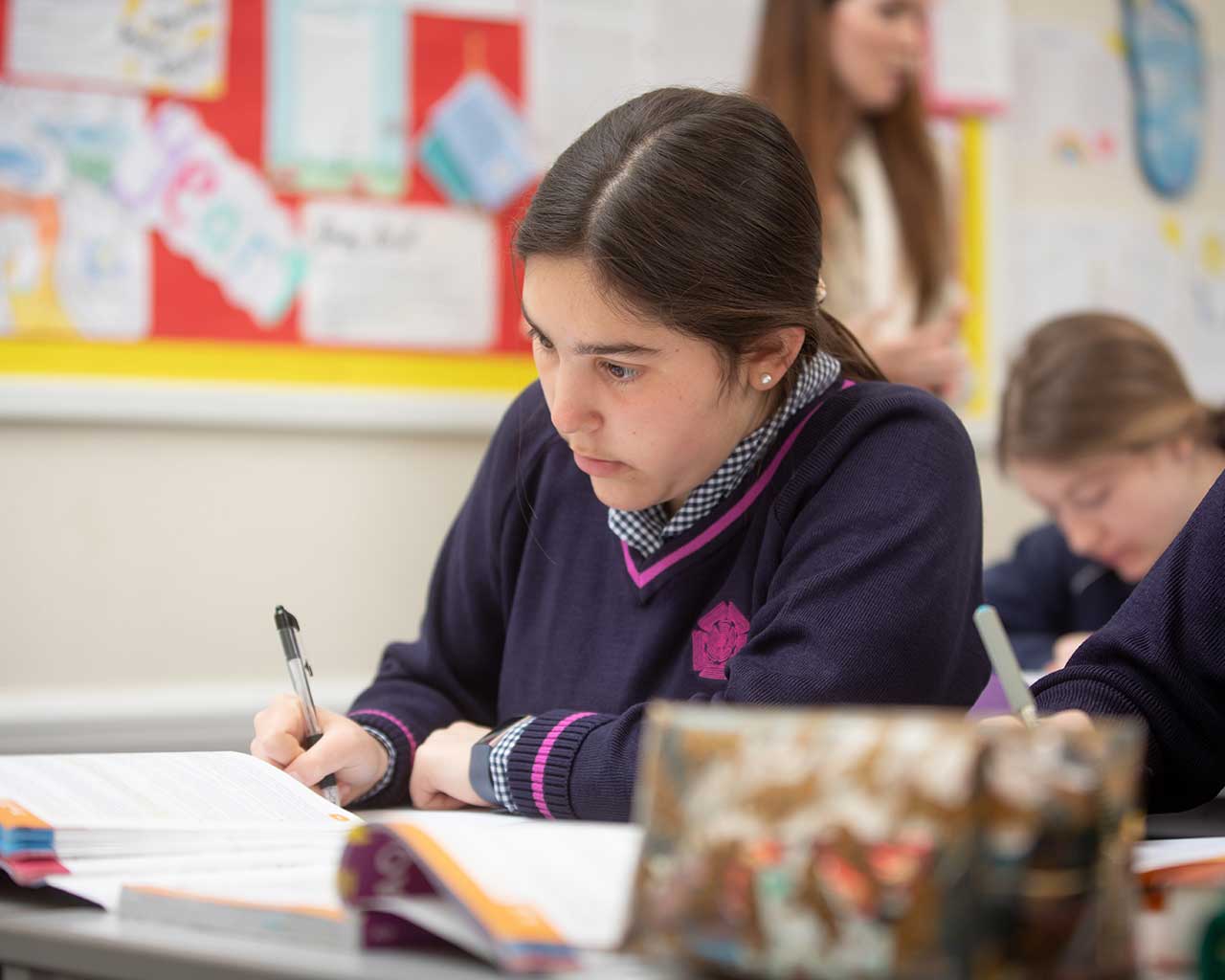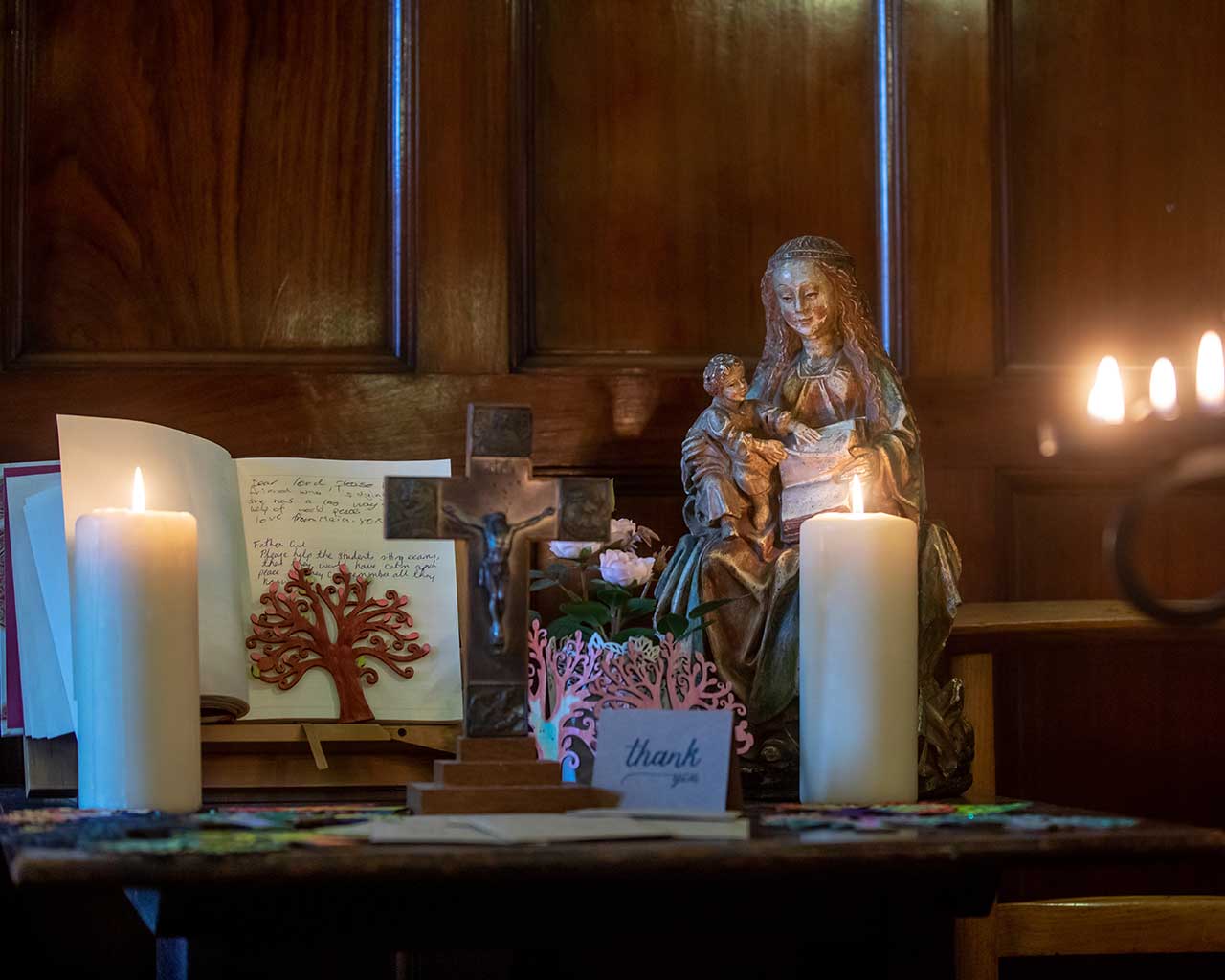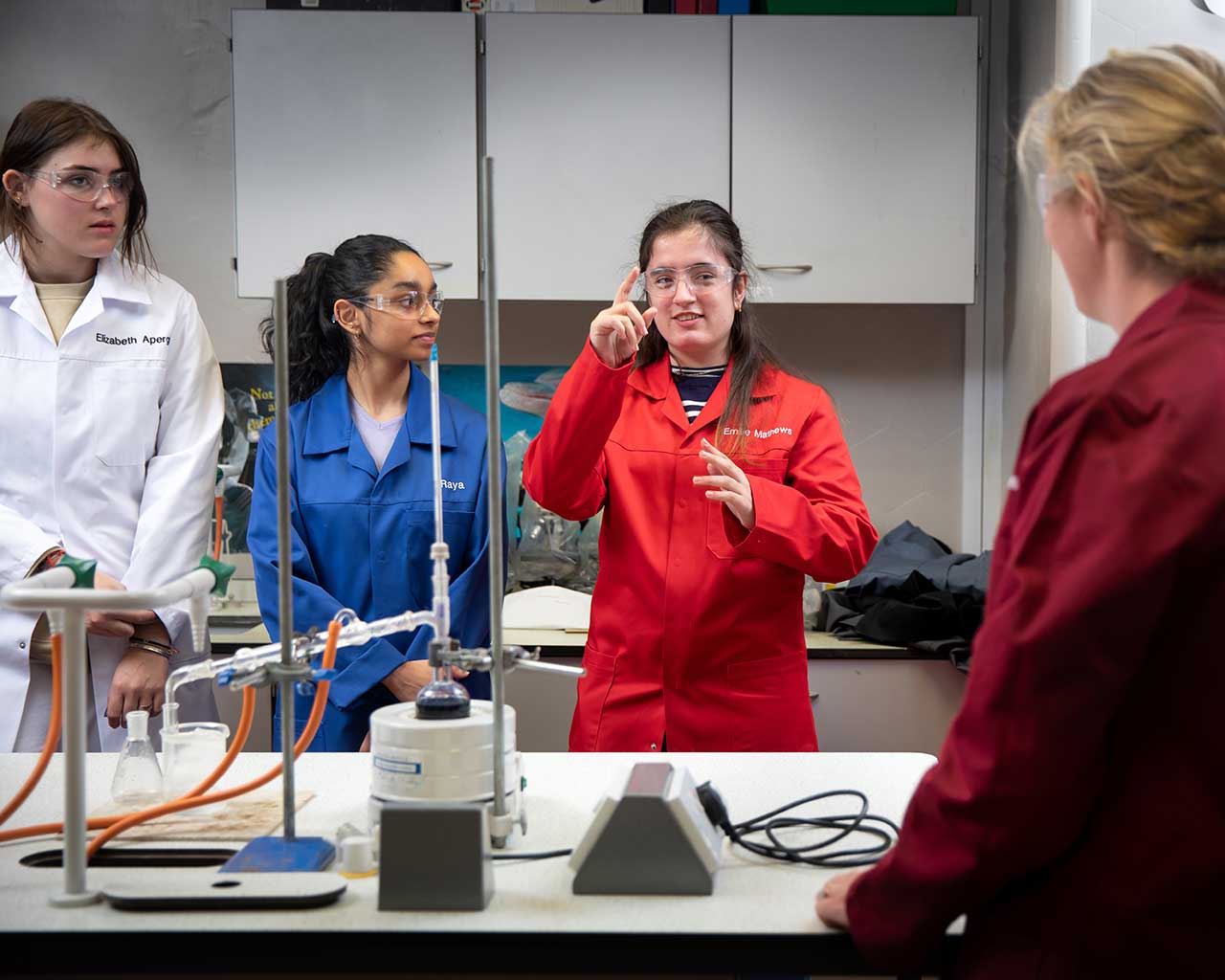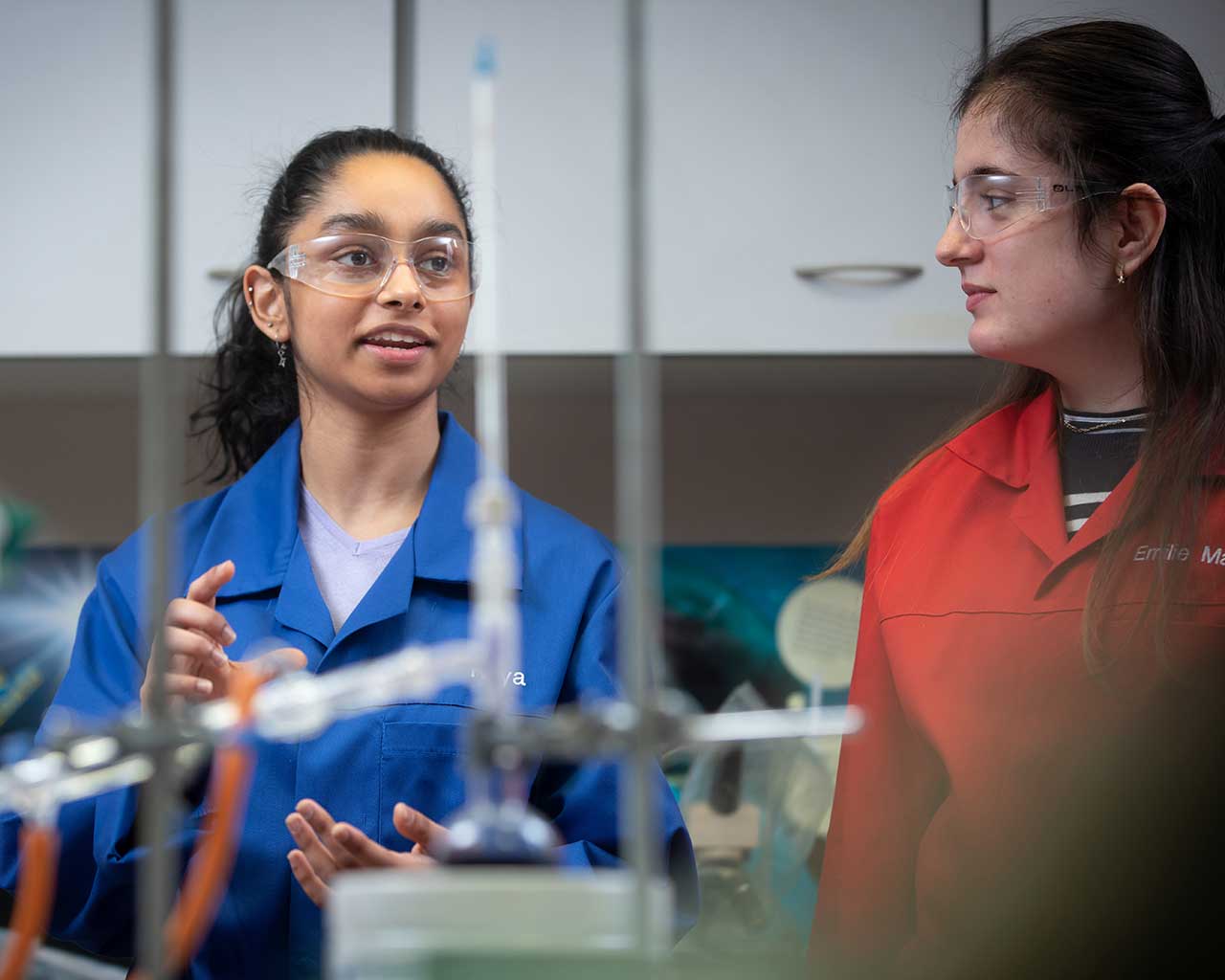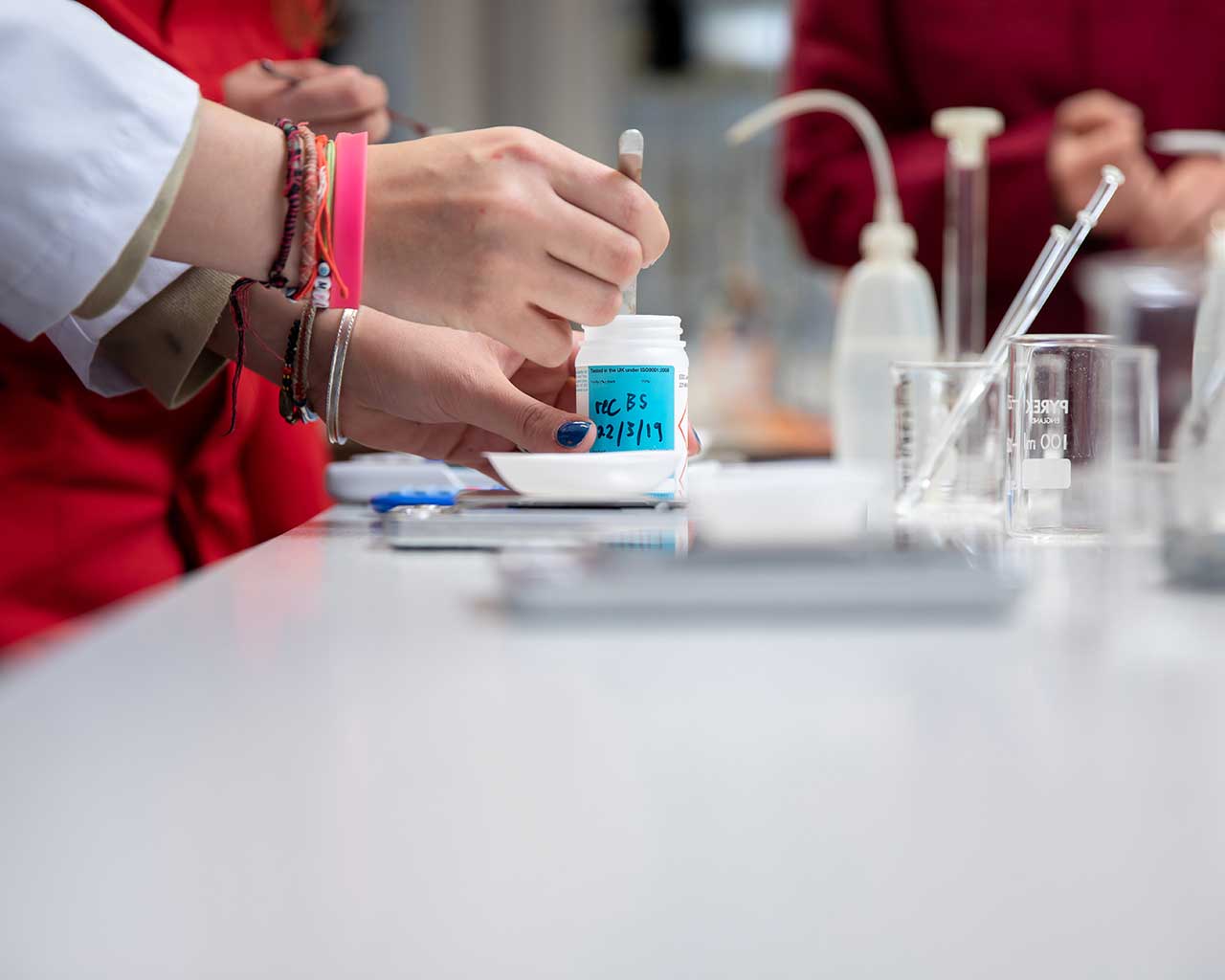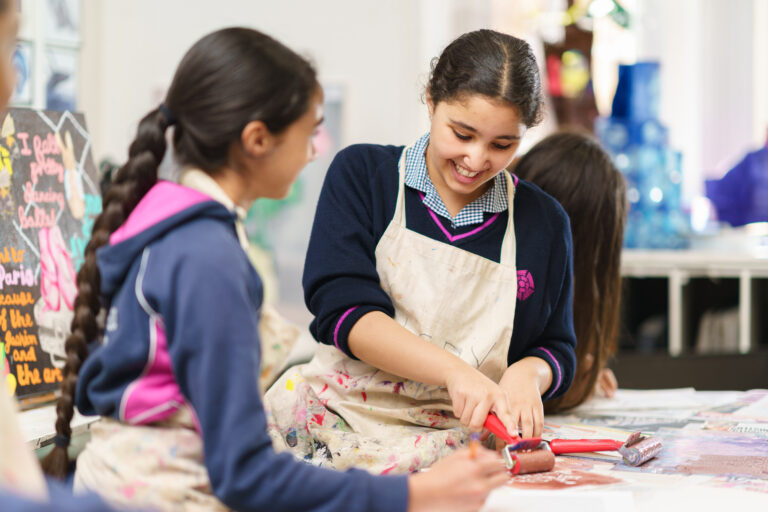We believe that Art and Design has a central role to play in preparing our pupils for a changing world. Our aim is to provide an Art and Design education of the highest quality, promoting social engagement and a broad view of the world.
Pupils are guided in developing a sense of discovery through the making process. Critical thinking and personal reflection are central to pupils developing the skills required to produce meaningful, high-quality artwork.
Lessons in observational skills, eye-to-hand coordination, manipulating materials, and colour theory help the girls develop their own style in Art and Design and express themselves. They learn to critically respond to other artworks and deepen their understanding of technique, genre, and the purpose of artistic expression. We devise lessons that allow each pupil’s creative processes to grow organically, supporting them as they flourish into accomplished artists.
In Years 7 to 9 pupils will work with a wide variety of techniques including drawing, painting, printmaking, sculpture, textiles, fashion and costume. The starting point for each year is an understanding of the formal elements and principles of Art and Design. Pupils develop the ability to respond to the work of others during gallery and museum trips and are encouraged to express their own opinions and learn how to validate them. Pupils undertake cross-curricular projects, with a focus on creativity and innovation, to give the pupils an opportunity to work in teams to create, develop and market an idea that will be judged by an industry professional. Pupils are encouraged to attend extra-curricular activities including Art club, Textiles club and Photography club.
The Art department had a very positive impact on me, increasing my confidence in my abilities and creativity. I really enjoyed the teaching and being encouraged to try new techniques and mediums. Kana U6
In Years 10 and 11 at GCSE level the pupils can focus on up to three areas of Art and Design, including Fine Art, Graphic Communication, Textile Design, Three-dimensional Design and Photography.
An initial introduction to skills and techniques at the beginning of Year 10 gives the pupils a solid foundation upon which to explore their own ideas. There is scope built into the projects to allow for independent investigations. We believe drawing skills are the foundation of Art and Design practice and projects begin with formal and experimental drawing. This impresses upon the pupils the importance of refining their drawing skills. GCSE Art and Design provides a space where pupils can develop personal ideas and explore creative thinking. Pupils often comment on the freedom and independence of thought afforded them in this subject. Workshop style support sessions are also offered after school.
At A level we offer both Textiles, and Art and Design. The courses begin with a review of skills and techniques in the Autumn term of Lower Sixth. Following this, each project begins with a block of observational drawing. They continue to explore creative solutions to their own ideas (with reference to historical and contemporary practitioners), experiment with a range of materials, and produce written work connected to their own chosen area of study.
By this stage, they are confident in devising their own projects.They have a plethora of sources to draw inspiration from. Their cultural awareness becomes evident through the connections they make to the work of others. As they find their own visual language and voice, they specialise in the most appropriate materials to communicate their ideas.
Weekly Life Drawing and Portfolio sessions are offered to students at A level to support them in preparing for interviews at Foundation or BA Honours level. We have an excellent success rate of students securing places to study on Fashion, Textiles, Architecture, Animation, Film and Fine Art courses UK wide.
